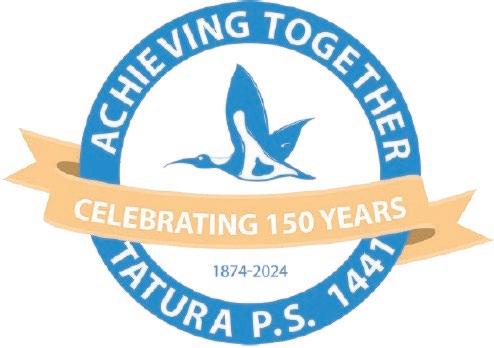



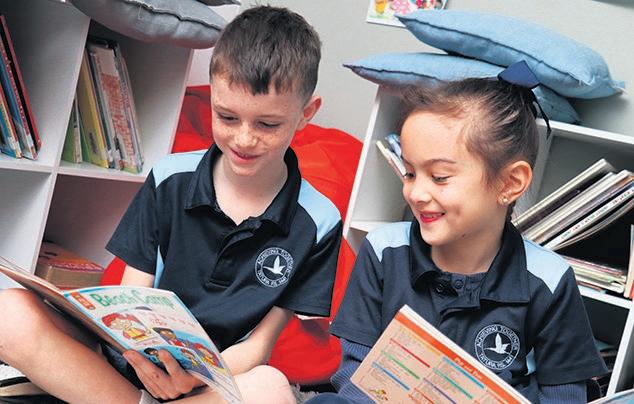










It is with much pride that I introduce this commemorative booklet on the occasion of Tatura Primary School’s Sesquicentennial.
Over 150 years, many thousands of children have walked through the doors to a place of learning.
A place where children have been given the skills they need to be responsible, caring and informed members of the community.
Friendships have developed and lifelong connections have been made.
We look forward to rekindling many of these connections at our celebration on October 26.
A committee of past and present students and staff has spent many hours preparing for our 150 years celebration.
I want to thank them for their commitment to ensuring that we honour the history of this important educational institution in Tatura.
“Tatura Primary School has had many changes over the years, but also maintains some of the traditions that have been a part of the school’s fabric over the decades.”
Tatura Primary School has had many changes over the years, but also maintains some of the traditions that have been a part of the school’s fabric over the decades.
The school, today, is located in the tranquil lakeside and sporting precinct just three blocks south of the town centre.
Tatura Primary School’s vision is for all members of the school community to achieve together.
Students are reminded of it every day as it features on the logo found on every shirt and jumper alongside our stylised ibis — a logo that everyone in Tatura recognises.
Students, staff and parents have a shared vision of providing a safe, caring and supportive environment that enhances student learning, engagement, wellbeing and personal growth, and where every voice is heard.
At Tatura Primary School, we aim to ensure that everyone in our school community is treated with fairness and respect.
We strive to create a school that is inclusive and safe, where everyone is empowered to participate and learn.
Students, staff and members of our school community are encouraged to live by and demonstrate our core values of Being Respectful, Being a Learner and Being Safe.
These values underpin the learning environment at Tatura Primary School and can be seen in the classrooms, in the yard, when in the
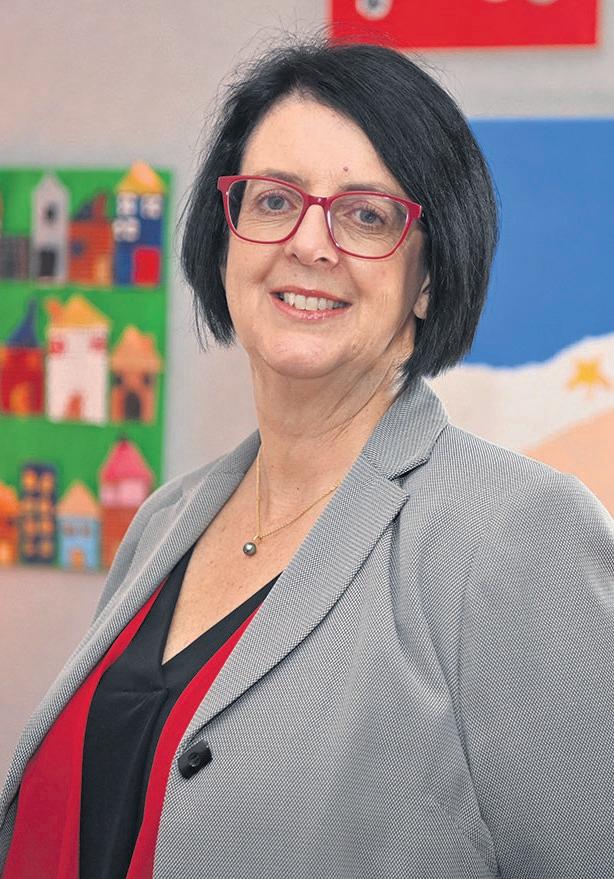
community or further afield on camps and excursions.
Our dedicated and professional staff play an integral role in the school.
They are committed to each and every child and support their development.
The core curriculum is supported by other specialist subjects that include Science, Physical Education and Art.
The Resilience Project has been a feature of 2024 with an emphasis on teaching about gratitude, empathy and mindfulness.
Our instrumental music program is a feature in the senior section and it is made possible by the generous support of the Fairley Foundation.
In the nine years that I have been Principal of the school, I have seen many changes.
One of these was the replacement of one of our 50-year-old buildings with a modern new facility for administration, classrooms, library, canteen and more.
This development included a new, fully landscaped courtyard that enhances student play and provides enriching, outdoor learning spaces.
I can’t wait to highlight this, and much more on October 26 when you will be invited to tour the school.
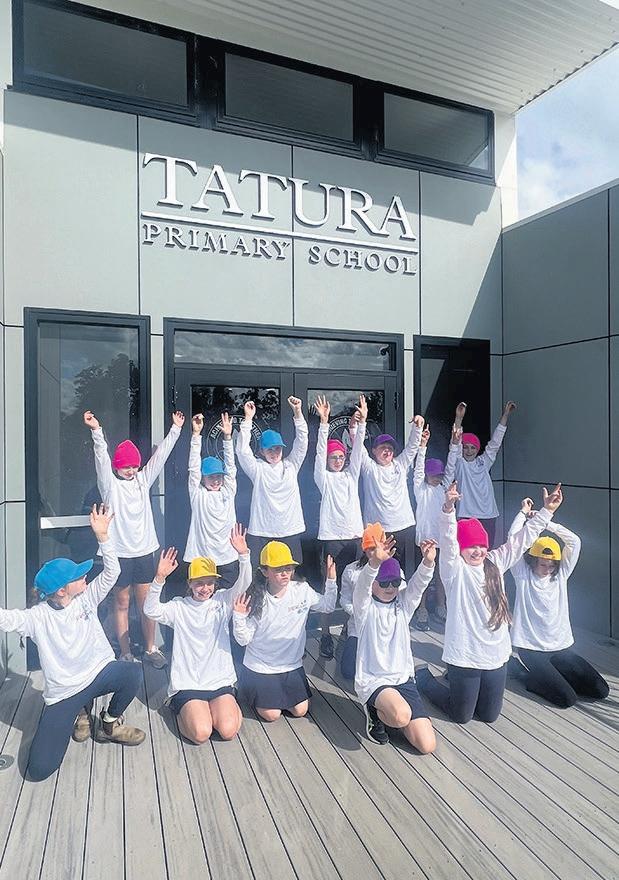
You will be impressed with what is being demonstrated in each of our three buildings — history will be on display as well as the work of our current students.
In conclusion, I would like to honour everyone associated with our school over the years and pay tribute to them here:
• Past Principals who showed commitment to leading the school and producing leaders of the future;
• Teachers who have produced lifelong learners in our students;
• Support staff who have created opportunities for students to develop life skills;
• Office staff who have supported everyone, everyday;
• Families and friends who have been there for their children;
• Community supporters who have stood alongside us along the way.
Thank you to all our students, families and staff, both present and past, for contributing to the wonderful place that is Tatura Primary School. Here’s to the next 150 years and the memories yet to be made.
Susanne Gill
Tatura Primary School Principal
The respectful relationships initiative fosters a school culture of inclusivity and gender equality.
Respectful Relationships education is a core component of the Victorian Curriculum from Foundation to Year 12.
It is all about embedding a culture of respect and equality across the entire school community.
The initiative is a whole-school approach that trains teachers and
supports schools to model and promote respect, positive attitudes and behaviours.
It teaches children and young people to build healthy relationships and their self-confidence.
Respectful Relationships embeds a culture of respect and gender equality across the entire school community, one of which Tatura Primary School strives to uphold and integrate into its daily practices and interactions.
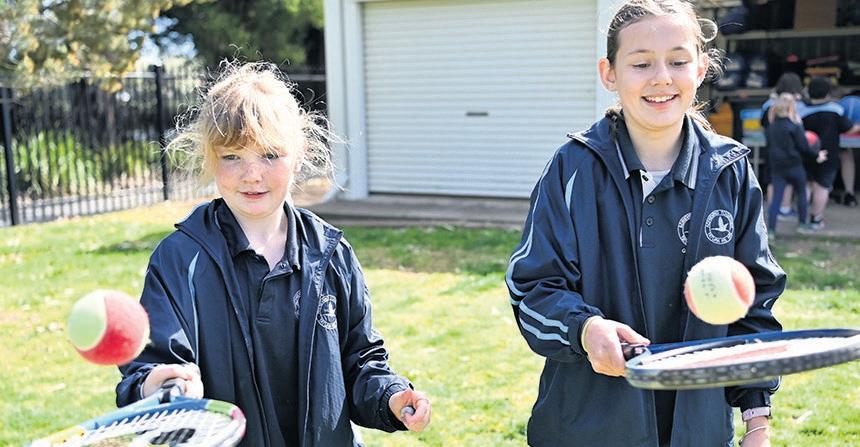
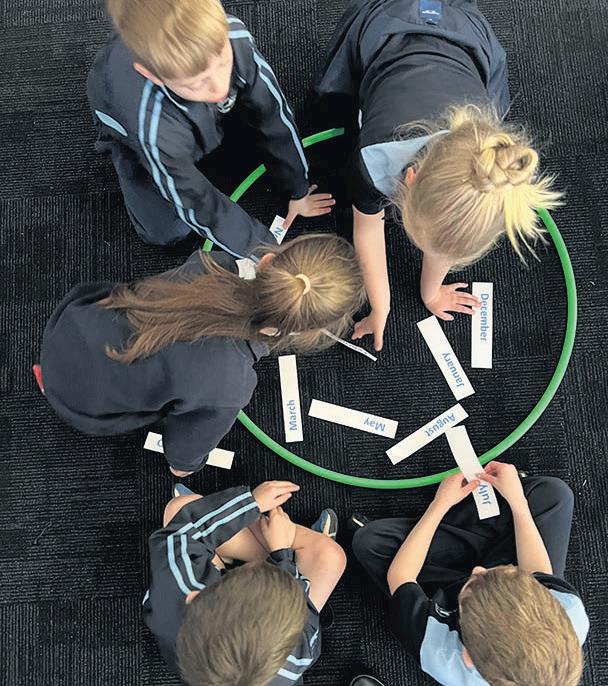
Tatura Primary School’s legacy continues.
On behalf of the School Council, I would like to extend our warmest congratulations to Tatura Primary School on reaching its milestone of 150 years.
The anniversary shows the dedication and commitment of generations of students, educators, families, friends and community members who have contributed to our school history.
Over the past decades, Tatura Primary School has stood the test of time — providing quality and
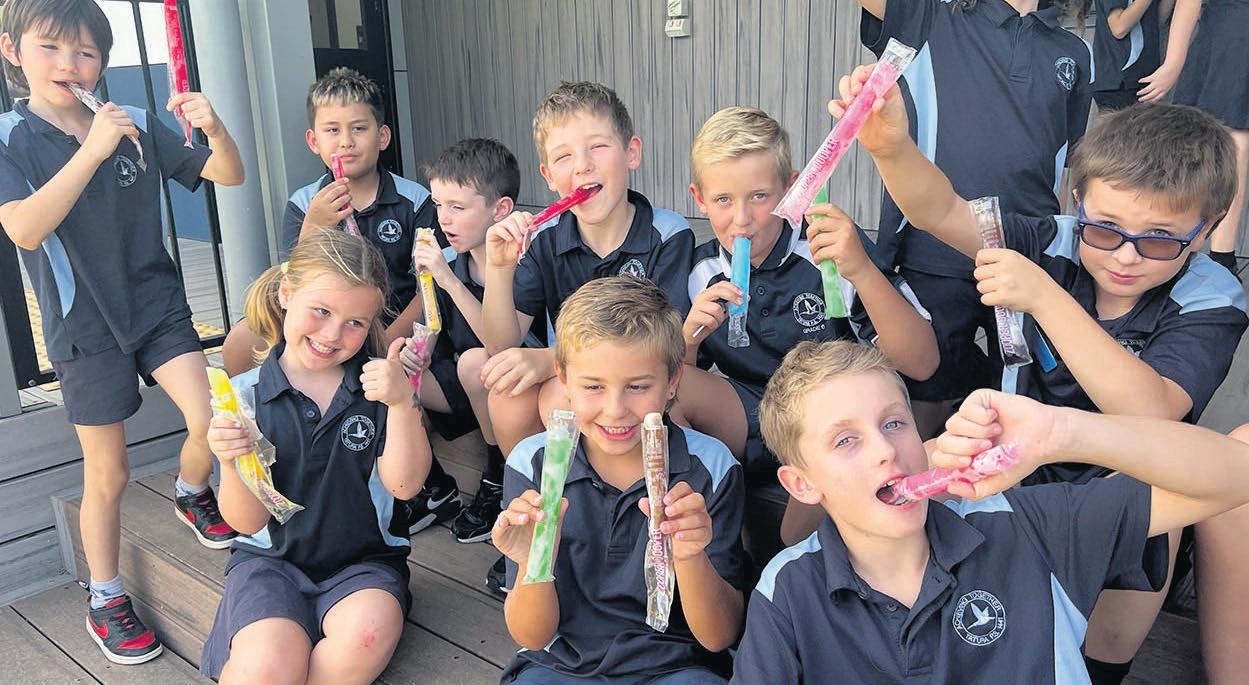
inclusive education, developing young minds and instilling values that go beyond the school grounds.
As we celebrate this significant milestone, I would like to thank all the parents and friends that have volunteered their time to make Tatura Primary School the outstanding institution it is today,
In particular, I would like to acknowledge all past and present members of the School Council for their contributions.
A big thank you to past and present dedicated staff and passionate educators of Tatura Primary School that continue to evolve and
Tatura Primary School has three school values for students to follow and implement into their daily lives.
Students should always Be Safe, Be Respectful and Be a Learner while in school, with principal Susanne Gill saying the students do an excellent job at upholding these values.
As part of this, the school has a number of incentives to inspire its students to do better and follow these values.
“We have awards every week at assembly for students,” Susanne said. “We give out 10 or 12 awards each week, and they can be based on any of these values, so it might be a learner award, a respectful award or a safe award.”
These awards are nominated by members of staff, with students accumulating points for the good
behaviour they display.
“We reward positive behaviour,” Susanne said.
“Students can cash in their points for vouchers and then go to our value shop and exchange their voucher for a prize.”
“We’ve got all sorts of prizes, like pens, pencils, rubbers and that sort of thing and sometimes soft toys, little games, and we’ve even got vouchers to have lunch with the principal.”
The points students earn are also contributed to a total for their house groups, with big prizes for the winning house.
“At the end of every term, there’s a reward given to the winning house, so last term the winning house got hot chips and could come out of uniform,” she said.
“It’s an incentive to do better, to adhere to our values and remain positive.”
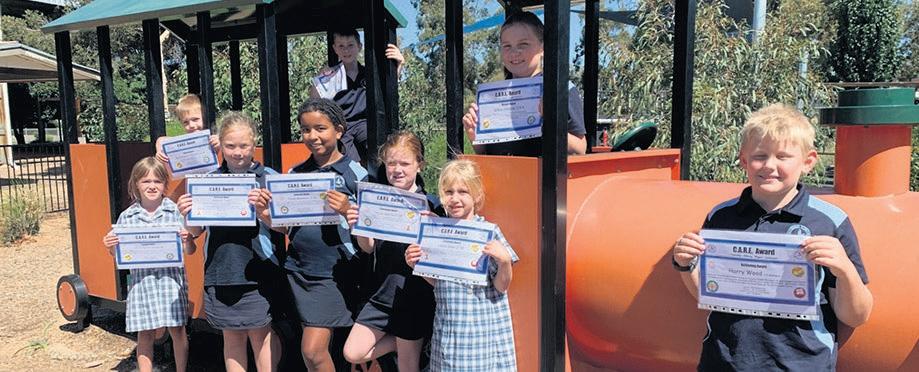
Students are rewarded for sticking to the school’s values.
embrace innovation, diversity and excellence in education.
As we celebrate this significant milestone, let’s not only honour the past, but look forward as we embark on the next chapter of our journey.
Let’s continue to embed the values and commitment to quality learning and collaboration that have defined Tatura Primary School for 150 years.
Happy 150th birthday Tatura Primary School. Wesley Wilkie Tatura Primary School Council President



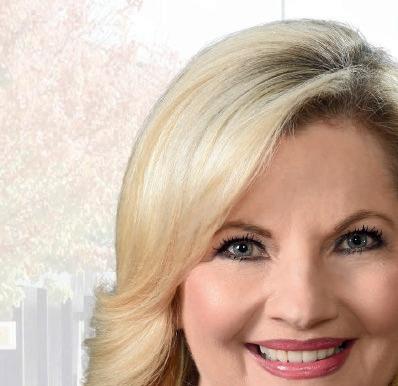
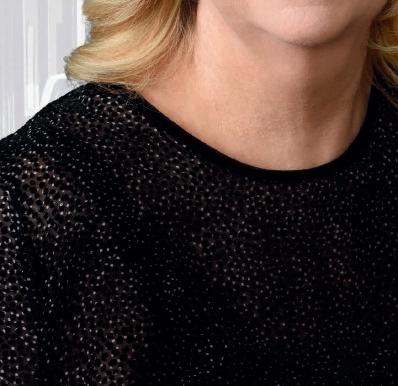


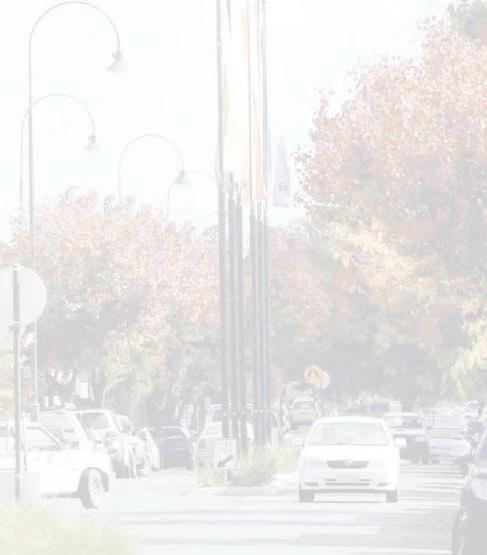
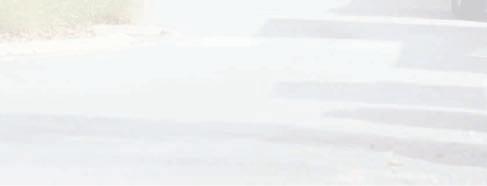

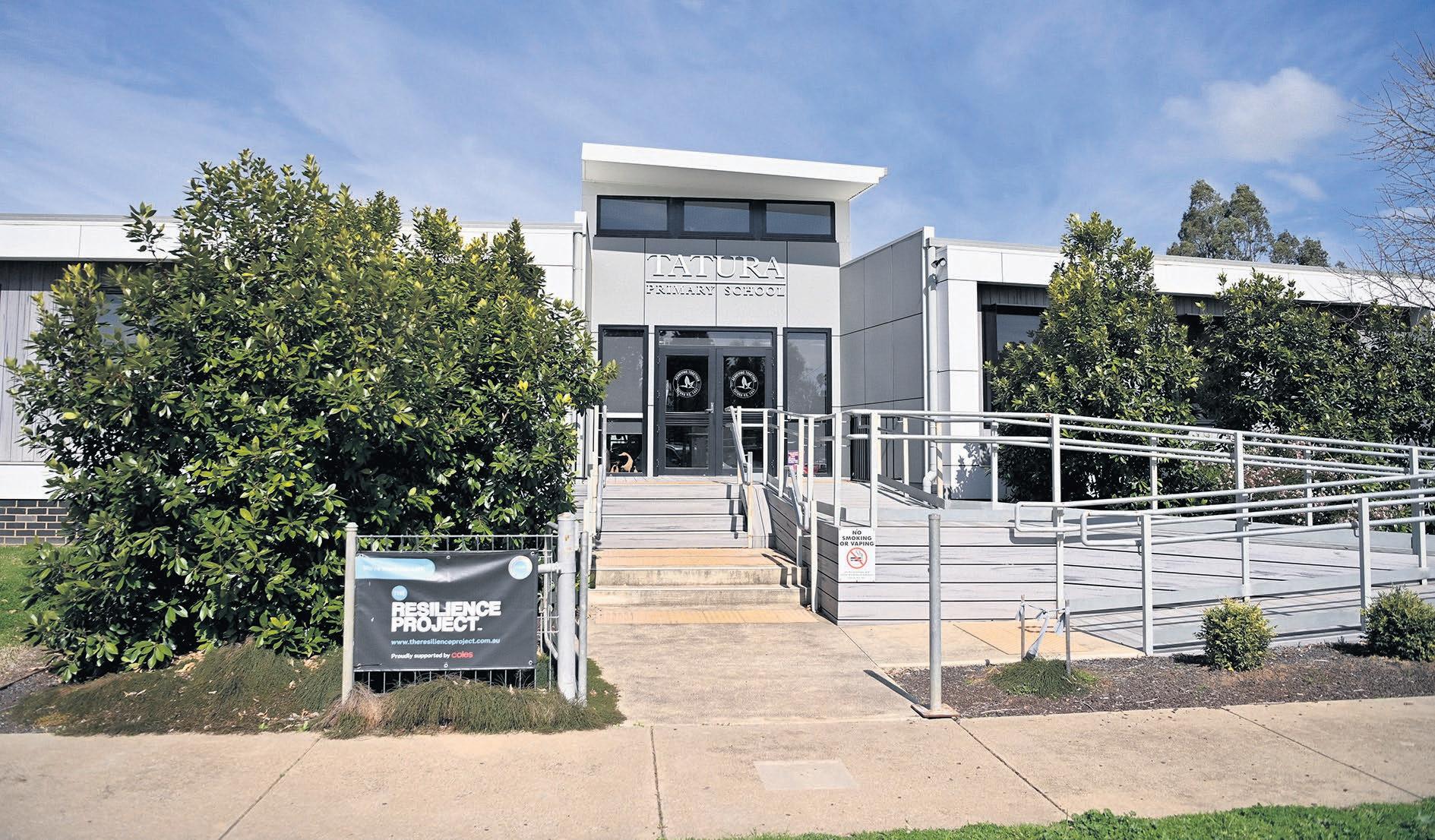
The historic journey of Tatura Primary School.
Up until 1869, settlement around Tatura was virtually non-existent.
However, in 1869, the Land Act was proclaimed which forced the existing squatters to clear and develop their properties or face eviction by the government.
As a result, there was an influx of settlers to the Tatura area, and following this influx and the proclamation of the Education Act, there was an obvious need for a school.
The details on Tatura’s first school vary depending upon the source, but it is likely the Education Department’s history is correct, so in saying that, it’s believed the first Tatura Primary School was a bark hut located somewhere to the north of Tatura and it opened in 1874..
Tatura Primary School’s history notes state that it was called the Tatura State School 1441, and it was, in fact, a bark hut.
It was built about 3 kilometres out of town on Fuzzard’s property and was known as Fuzzards until 1885.
From 1885 to 1969, local children were educated at the ‘Old School’ which was on Casey St in the centre of Tatura.
However, during the 1960s, the school committee lobbied politicians, and in 1967 it was announced that a new school would be built on the Service St site.
The present school site opened in February 1970 and had name changes including State School to Primary School, Headmaster to Principal, and the School Committee to School Council.
The official opening was held in March, 1971.
“However, during the 1960s, the school committee lobbied politicians, and in 1967 it was announced that a new school would be built on the Service St site.”
Today, the school is well maintained and is situated in the sporting centre of the town, adjacent to ovals, tennis courts, the swimming pool and the picturesque Lake Bartlett wetlands.
Current principal Susanne Gill said staff and students could only wonder what the pioneer children at the bark hut school would think of Tatura Primary School’s undercover playgrounds, artificial grass under shade sails, concrete court areas and green lawns.
“The children would marvel at our facilities and classrooms, and our access to technology to enhance learning,” she said.
“Bikes and scooters are parked in the bike shed — the pony paddock is long gone.
“We have come a long way, and we are so proud of our school today.”
BY Kelly Carmody
Connecting with the Tatura community is important to Tatura Primary School.
Students take walks around town, to the footy oval, memorial gardens, and around Lake Bartlett, to connect with the community and explore their town.
Band students also participate in community events, playing for Moyola Aged Care residents, a retirement village in Tatura, as well as playing for the kindergarten students.
“We involve ourselves in the community whenever we can,” principal Susanne Gill said.
“We’re very proud to walk in the ANZAC Parade every year, and lay a wreath on Remembrance Day.”
Other ways they engage with the community is hosting talks with police officers and firefighters to help students learn more about how they protect the community and the work they do.
Tatura Primary School also holds fetes for the school community to enjoy.
“Years ago, we used to have big fetes,” Susanne said.
“COVID put a stop to our big fetes … so we’re looking forward to having a big fete on October 26.”
The fete will celebrate the 150th anniversary of the school, in a fun filled day for the school community and wider Tatura community.
BY Georgia Tacey

For nearly two decades, Tracey Ritchie has been a dedicated member of the Tatura Primary School community.
Starting off as a teacher, she joined the school in 2006, teaching the Grade 5/6s before becoming the assistant principal, a role she loves.
“I have a long history and a long association with the school, having worked with a number of different staff and working with many great principals,” she said.
Working closely with students and staff has been some of her favourite moments at the school.
“It’s all about the relationships you establish with staff. Many of them have become lifelong friends,” Tracey said.
While her role is no longer in the classroom, spending time with the students remains her favourite part of the job, taking every chance she gets to be involved.
“I think with this role, you do get the opportunity to go into the classroom,” she said.
“I’ve had teaching roles as part of my AP position. When you look at staffing, I’ve had commitments to teaching things like art and the social skills program, but also get the chance to go back to the classroom when we have staff who are absent and relieving teachers.
“It’s a nice opportunity to disconnect from different duties that we have here in the office and just to spend time with the children, which is why I taught in the first place.”

Outside of Tatura Primary School, Tracey has been teaching and in schools for the past 30 years, and has been in the Shepparton area after moving from Melbourne 25 years ago.
“It is a busy job, and it is varied, and at times it can be stressful, but it’s very rewarding,” she said.
BY Georgia Tacey
At Tatura Primary School, science isn’t just a subject — it’s an adventure.
The school’s hands-on approach sparks wonder and excitement in every class, every week.
Science is an integral part of Tatura Primary School’s specialist program, with lessons taught to every class, every week.
Focus areas include:
• Biological sciences
• Chemical sciences
• Earth and space sciences
• Physical sciences
Students at Tatura Primary School engage in hands-on, interactive activities designed to ignite their curiosity and passion for science.
The four house groups at Tatura Primary School have been given a makeover.
After consultation with the school community, the four house group’s names were changed from the previous explorers they were named after, this time gaining inspiration from the native wildlife.
The houses now proudly bear the names of native birds in the Yorta Yorta language, offering students the opportunity to learn about local wildlife and Indigenous culture simultaneously.
Blue House is named Wigilupka, for kookaburra, Green House is named Danapna for swan, Red House is named Dudjutja for rosella and Yellow House is named Gadin for pelican.
The house groups are a fun way for students to become more involved with the school, with students participating in sports days, and they can also earn points for their house for the good behaviour they display, resulting in a special treat for the winning house at the end of the term.
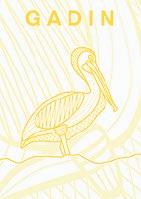
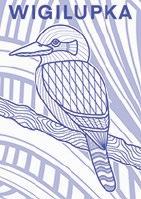
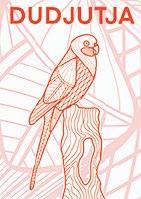
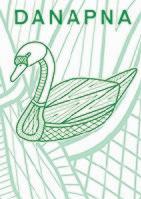
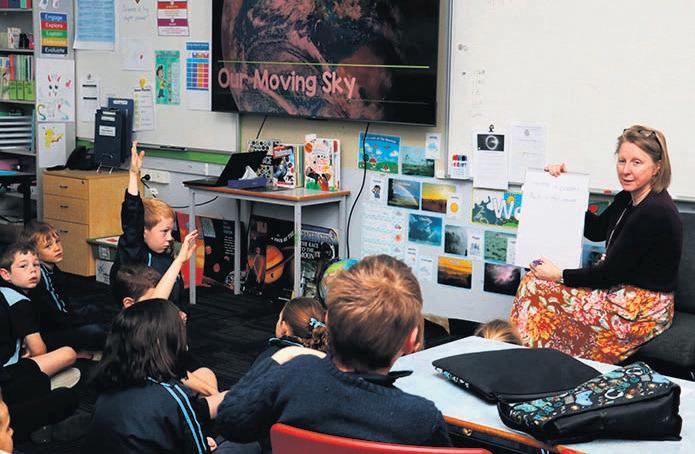

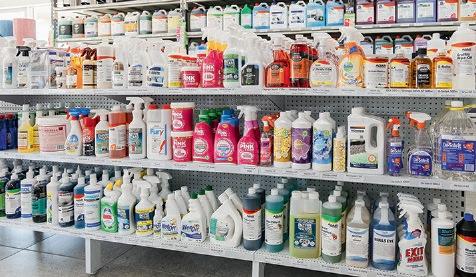
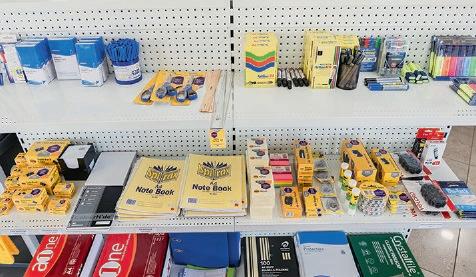

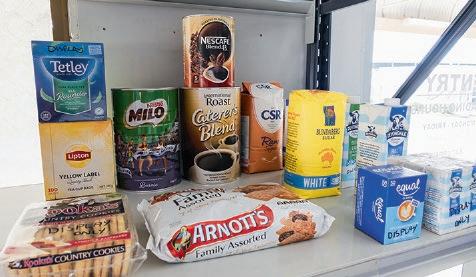
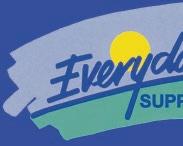

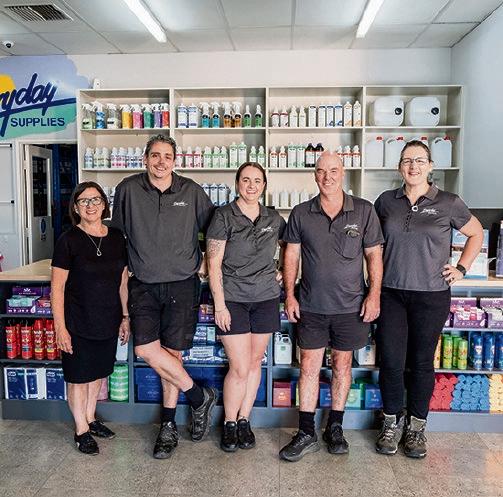
• Free Delivery throughout the GV
What was your role at Tatura Primary School?
Teacher librarian, reading recovery teacher, literacy co-ordinator, classroom teacher.
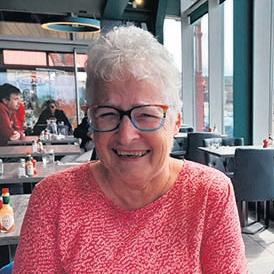
What year did you start and finish your role? 1990 until 2007.
What are your favourite memories of the school?
What was your role at Tatura Primary School?
Classroom teacher, senior section leader, physical education specialist, sports and health co-ordinator and Tatura District Sports Association president. What year did you start and finish your role?
I commenced at TPS in January 2006 and retired in December 2021, and I’m still doing some CRT work at the school.
My two children, Justine and Tom, both attended TPS, and I was happy to apply and get a job at the school after both had moved onto secondary school.
What are your favourite memories of the school?
It had such a calm, positive feel. I loved the support from everyone on staff. The involvement
What was your role at Tatura Primary School?
I first visited Tatura Primary School as an itinerant physical education teacher in 1963 based at Shepparton.
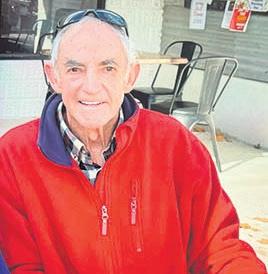
During the summer I taught swimming at the Raymond West Swimming Pool for three days and then one day at Mooroopna Swimming Pool and one day at Tatura Swimming Pool.
I enjoyed nine-and-a-half great years at Tatura Primary School with a wonderful co-operative staff and supportive parents with the children eager to learn.
I loved being the teacher librarian and working with all the students in the school to foster a love of books.
It was also very rewarding to be the reading recovery teacher and follow the progress that students who had been through the program had made.
Mainly I remember students, and it is good to meet them again and to hear what they are doing now. What school staff do you remember?
Having taught at the school for 17 years, there have been many colleagues. Brendan Ryan always had a story or joke to tell.
Do you remember any significant events
of parents, grandparents and extended families in their child’s education was tremendous.
School camps were always a highlight, a great environment to establish relationships outside the classroom with both students and fellow staff.
I also got to teach with my daughter for a couple of years which was also a memory to cherish.
What school staff do you remember?
After having the previous 17 years teaching at Gowrie St, the change was a bit daunting. This was overcome by being ‘mentored’ by Phil Darby, who retired in 2006.
You meet and work with so many staff that it would be unfair to single any particular one out. They were all excellent and so supportive. Do you remember any significant events or funny moments at the school?
What are your favourite memories of the school?
I was impressed with parent support for the swimming program at Tatura. After Easter, I visited the primary schools teaching ball skills, athletics, gymnastics and folk dancing. What school staff do you remember?
Fred Volk was the principal of Tatura Primary School. I appreciated his attitude and support. The school was a magnificent old building in Hastie St. Do you remember any significant events or funny moments at the school?
In 1985 I transferred from principal of Mansfield Primary School to Tatura Primary School.
As I had connections in the Mansfield area, I was able to introduce the Grade 6 children to a
A journey through the visual arts. The main objective of the Visual Arts Program is to develop student self-confidence, enjoyment, and understanding of the arts by encouraging exploration, interpretation of personal experiences, and fostering imagination and creativity.
Students develop skills through various materials and techniques, enhance their looking, thinking, and technical skills, and engage in social interaction with peers while analysing their own and others’ artworks from various contexts. For junior students, the focus is on developing fine motor skills and experimenting with different tools and techniques.
Middle school students respond to various artistic styles and techniques, creating their own artworks based on practised skills.
Senior students undertake a major project involving threads and textiles, where Grade 5 students create and sew ‘Buddy Bears’ for future Foundation students, and Grade 6 students create and sew ‘Graduation Bears’.
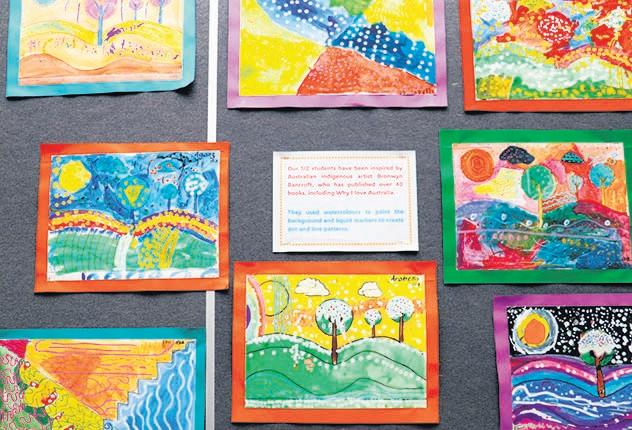
or funny moments at the school?
School was a busy place with camps, sleep-overs, excursions and performances.
With the Grade 3/4s, visits were organised to the local nursing home, Moyola.
The students and residents enjoyed talking and seeing each other.
Books were made by the students about the residents’ lives and given to the residents.
What are you up to now?
I am enjoying retirement. There is time to travel, enjoy hobbies such as reading and patchwork and catching up with friends.
The redesign of the school buildings and the development of the surrounding grounds has been a big change.
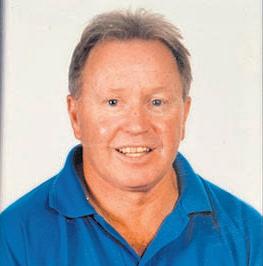
Camps and sports days always provided plenty of fun, often as the ‘commentator’ on staff v students activities. I was able to add a bit of flavour to the events … in my eyes anyway. Also, the advancement in technology changed the teaching practice.
What are you up to now?
While still maintaining my teacher registration, I have done some CRT work at TPS. However, the majority of my time is recreational, with golf, camping and travelling to unique places in our great country.
week of cross country skiing.
The school council supported this initiative and the tireless parents club provided assistance. There were several stand out events, including Cobbers Day, an event that Jeff Baker, my deputy principal, initiated in collaboration with Sacred Heart, where the two schools combined for a variety of activities. … And of course, the end of the year concert in Victory Hall with proud parents watching as their children performed on stage.
What are you up to now?
I had an active role in writing submissions to obtain funds for Tatura Men’s Shed solar panels, security system, a new shed and kitchen.
A highlight of our shed is that we cook a nutritious lunch each Tuesday.
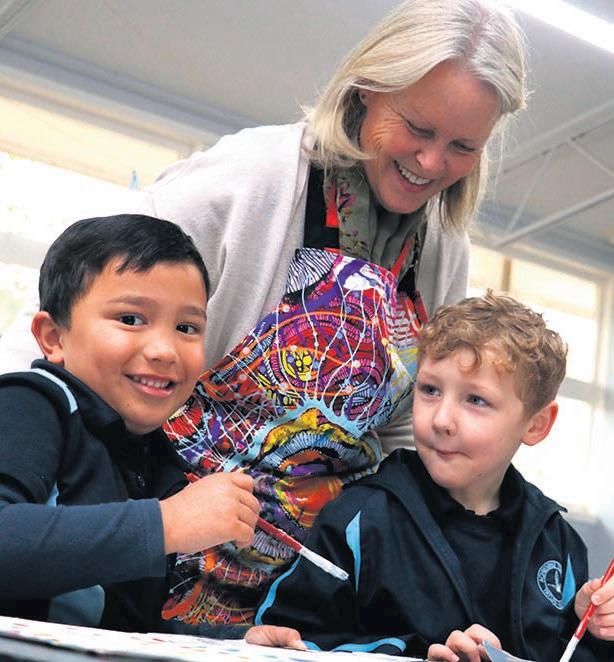
After completing a gap year as a trainee classroom integration aide at St George’s Rd Primary School, James Nihill’s career path took a surprising turn.
Originally focused on science and mathematics with an emphasis on civil engineering, it only took one week into his studies where he realised that teaching was his true calling.
James swapped to a four-year teaching degree in Geelong, and in 2019, just one month before finishing his studies, he was offered a position at Tatura Primary School, where he has been thriving ever since.
Now, the Grade 5/6 teacher and Tatura local is passionate about his role and being a positive role model within both the school and the wider community.
“You’ve got to be a role model,” James said.
“I try to be a role model just as much outside of school as I do in the classroom.
“I’m also heavily involved with junior football here in Tatura, and I think it’s important to set a good example.”
Reading, writing, maths, history and even geography are some of the daily subjects James teaches, and alongside striving to be a good role model, James also strives towards challenging his students in the classroom.
“I enjoy trying to challenge the kids and as a
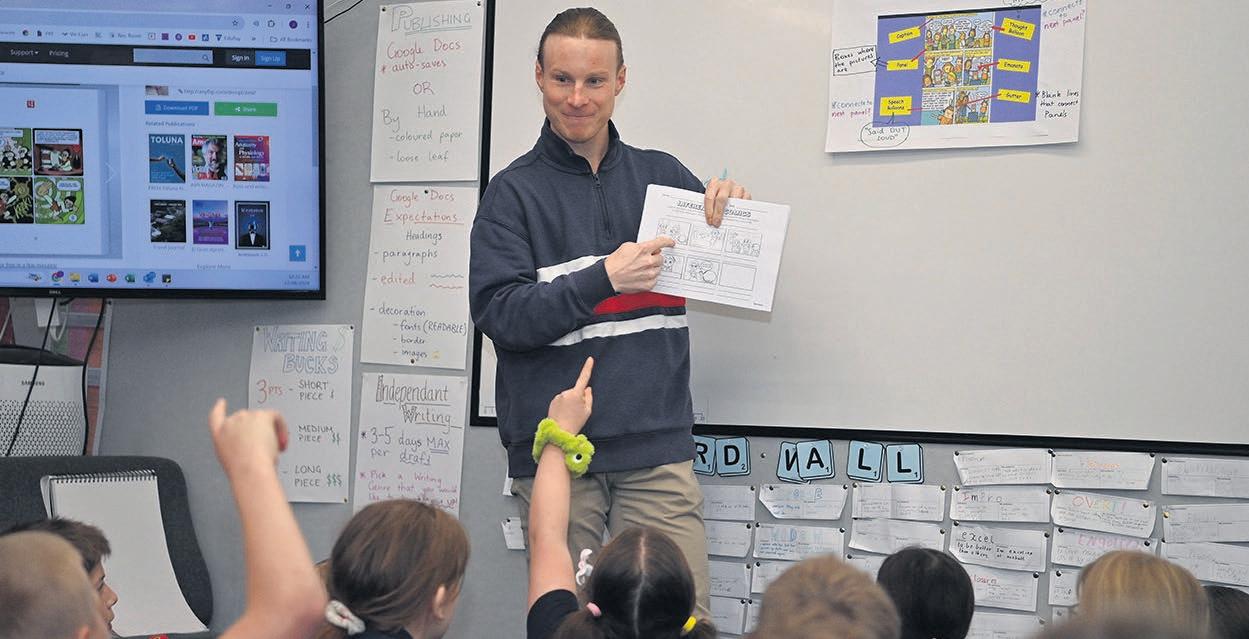
teacher, you must try and push them beyond what they’re comfortable with,” he said.
“It’s not about making it easy for them because you really want them to grow.
“I have to find ways that will challenge them, but also keep them engaged in learning at the same time, and I really enjoy doing that.”
A significant aspect of James’s role as a teacher, especially with the Grade 6 students, is preparing them for the next stage in their lives — high school.
He mentioned that in a close-knit community like Tatura, it’s common to see these students for years
“I try to be a role model just as much outside of school as I do in the classroom.”
to come, even after they have left the school.
“As a teacher, it’s part of your role to make sure they’re ready for the next stage in their life,” James said.
“It’s really rewarding to see a parent every now and then and hear that their child is doing well — that’s really nice to hear.
“I’ve loved all my time here as a teacher; it’s a great community school.
“I look forward to getting more involved with community school projects and seeing where those aspects can take us in the future.”
BY Kelly Carmody
For more than 20 years, Tatura Primary School has proudly hosted the annual district sports day on its school grounds.
While the day is competitive, it remains a fun-filled event for all the schools and students involved.
This success has led the school to expand its offerings, now hosting various sports days for schools across the district.
From netball to soccer and basketball, students from schools like Sacred Heart Tatura, Murchison Primary, and Toolamba Primary come together to enjoy these special events.
The nearby Howley Oval, located behind the school’s grounds, provides an additional space for students to stay active, have fun, and build camaraderie — all while keeping fit with a friendly smile.
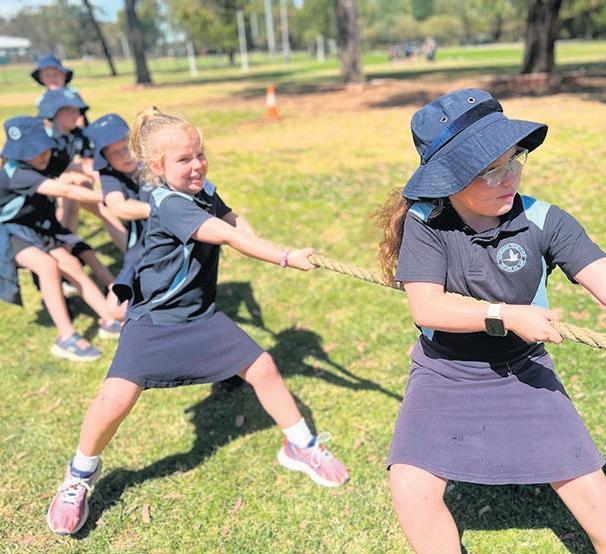
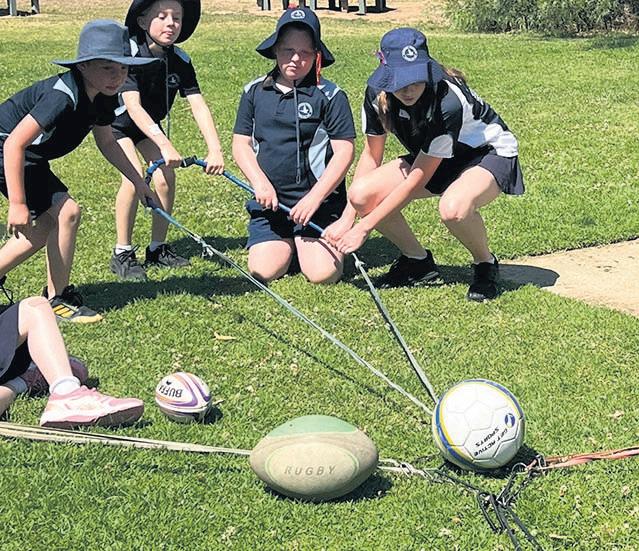

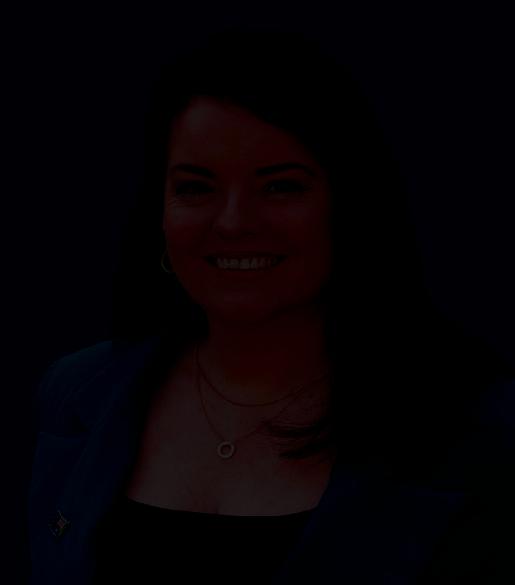
The facilities at Tatura Primary School are designed to enrich the educational journey, ensuring every student has access to a diverse range of activities and learning environments.
At Tatura Primary School, it prides itself on offering an enriching environment that supports both learning and play.
The facilities are designed to foster a dynamic and engaging educational experience:
• Spacious classrooms: Bright, airy classrooms with ample natural lighting create an optimal learning environment.
• ‘The Village’: The expansive junior section building features flexible learning spaces, providing a creative and adaptable setting for young learners.
• Specialised rooms: Dedicated spaces for music, art and science encourage creativity and exploration.
• Well-stocked library: A treasure trove of resources awaits students in the library, promoting a love of reading and research.
• Yard space: The grounds include areas for soccer, football, cricket, netball, and basketball, supporting a range of physical activities.
• Undercover adventure playground and basketball court: These facilities provide yearround fun and exercise, come rain or shine.
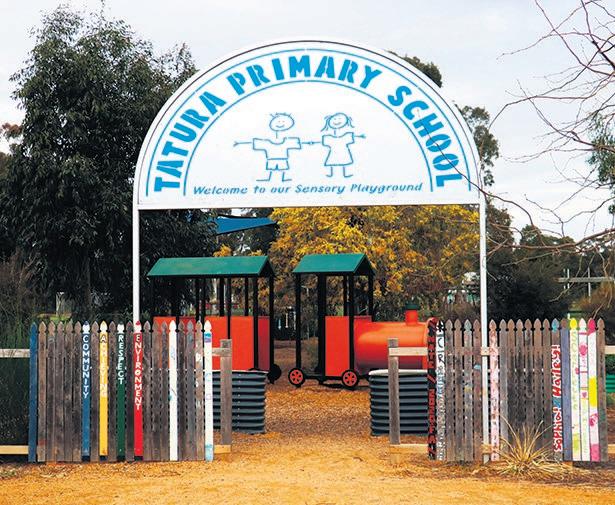
• Large, shady trees and sitting areas: Ideal for relaxation and informal gatherings, the green spaces enhance the school’s outdoor experience.
• Developing ‘sensory’ playground: Designed for quiet, thoughtful play, this new addition encourages sensory exploration and calm.
• Sandpits: Perfect for creative play and handson activities, allowing students to engage in imaginative experiences.
• Large outdoor games: Students enjoy a variety of games including hopscotch, bat tennis, down ball, connect four, quoits, tic-tac-toe, and bowling.
• Access to Lake Bartlett: This natural resource provides unique opportunities for curriculumrelated activities and learning.
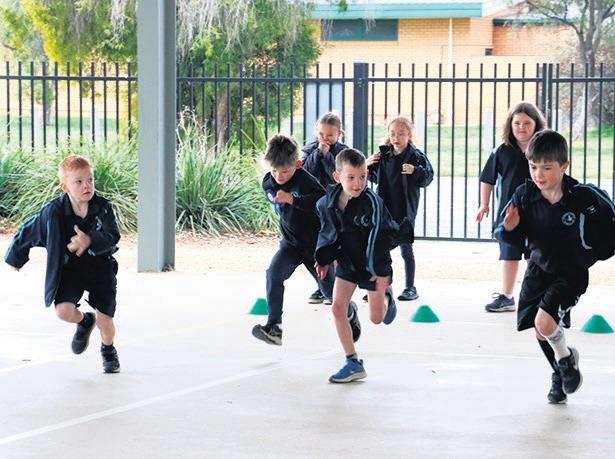
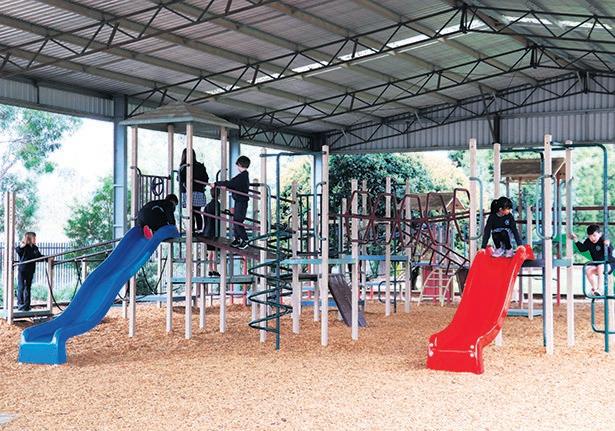
• Community sports facilities: The school utilises Howley Oval, the community stadium, netball courts, tennis courts, bowls greens, and the swimming pool for whole-school and interschool sports events, promoting physical fitness and community engagement.
Matt Jenkins, once a Tatura Primary School student with a love for PE, has turned his passion for horses into a career, transitioning from jockey to racehorse trainer after a lifechanging fall.
What year did you attend the school? I started Prep in 1998.
Who was your favourite teacher and why? Kylie Toy (I had a crush on her).
What was your favourite subject? PE. How did you get to school? Bike.
What was your least favourite thing
about school? The school work.
What did you do when you left school? Became a jockey.
What are you doing now? Horse trainer.
Tell us briefly about your life after Tatura Primary School …
I became a jockey after high school, but had a bad fall on a horse where I shattered my spine, fractured two vertebrates and shattered three and now have titanium in my spine for the rest of my life.
That injury ended that career, however, after recovering, I worked towards becoming a race horse trainer and have been for the last 18 months.
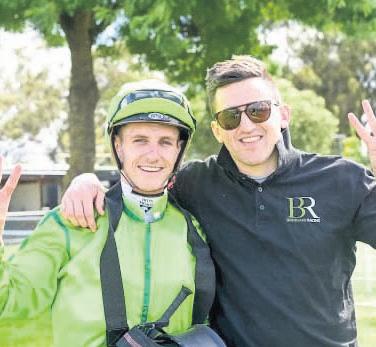
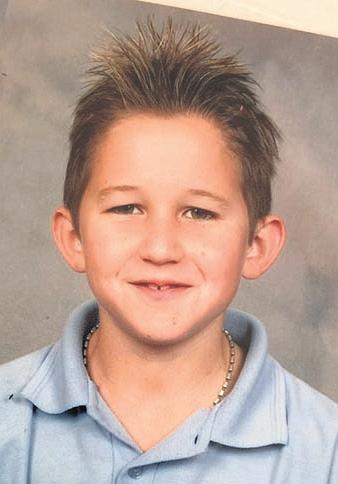




Proud carriers of Tatura Primary School students. Congratulations on your 150 year anniversary! Fords Shepparton Bus Service specialise in school group travel, whether you need local, regional or interstate. Our modern fleet of buses, coaches & mini buses are available to handle all your group travel requirements. At Fords your travel needs are our business. Fords have a modern well maintained fleet of buses, coaches and mini buses. Safety is our priority and most vehicles are seatbelt equipped. We look forward to o ering your school the utmost in charter & tour services. You can email us at the following address or call us on the number below. Fords can also have a representative visit your school or sta can feel free to visit our o ce.
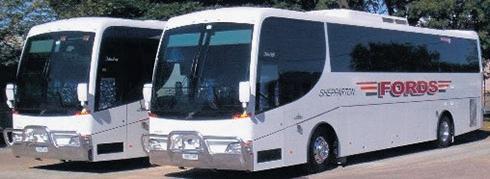



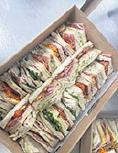









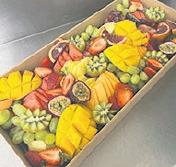

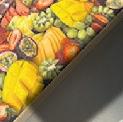


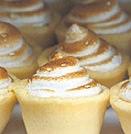

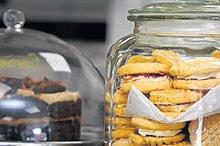
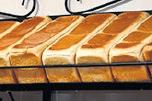




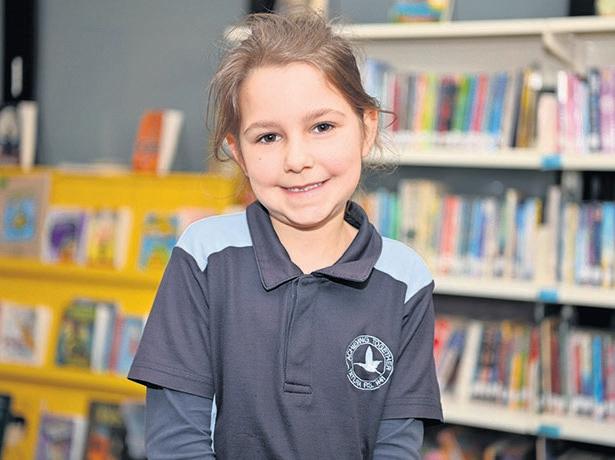
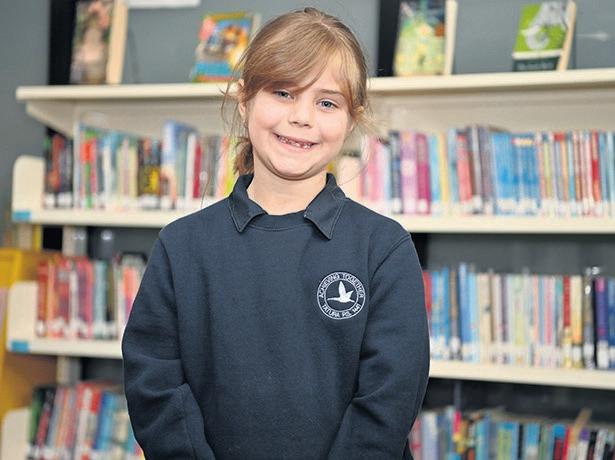
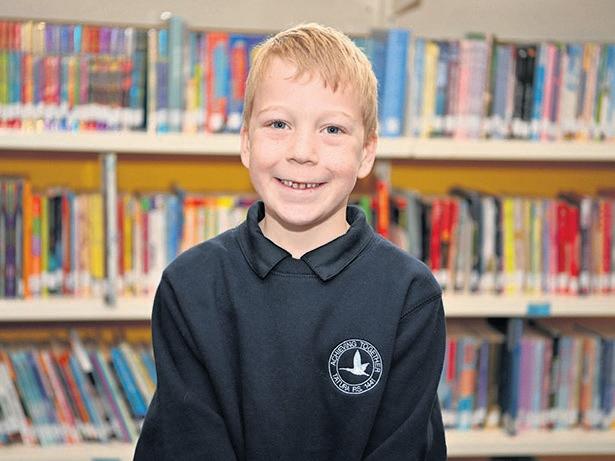
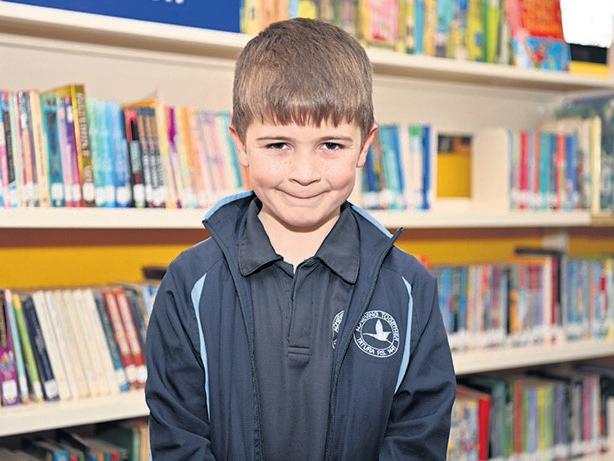
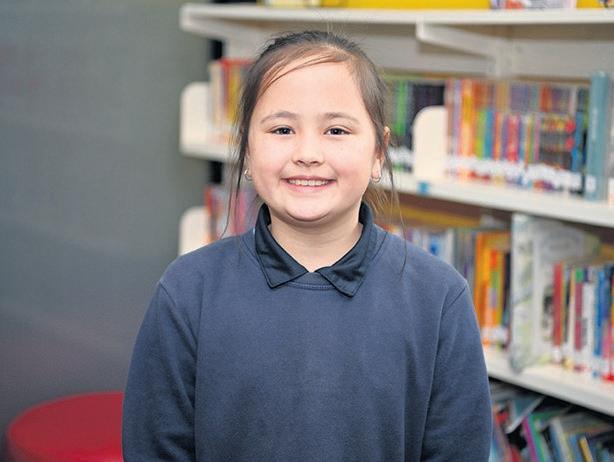
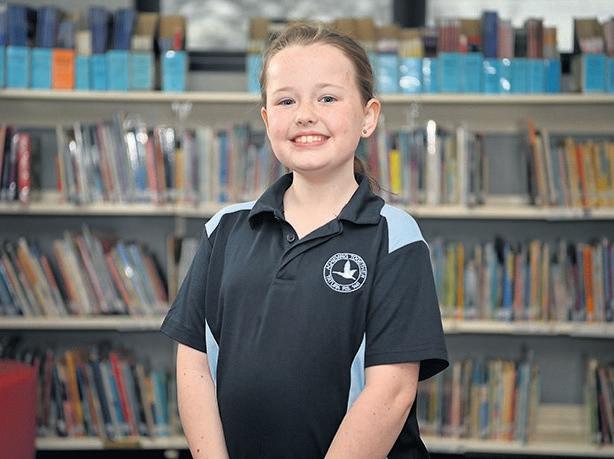
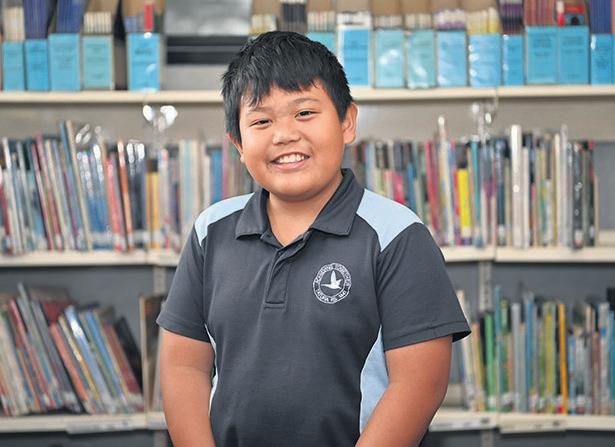

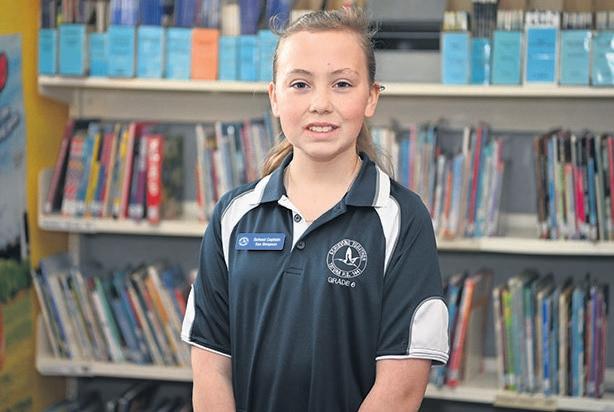
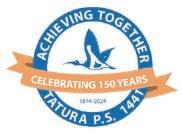
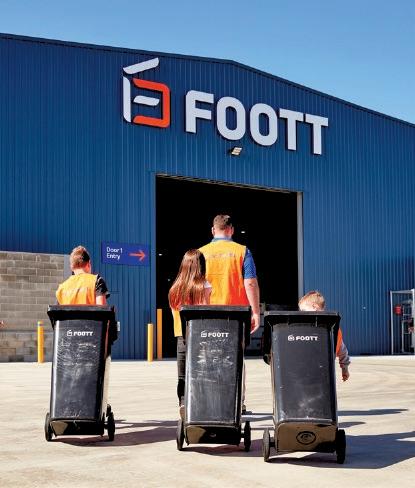
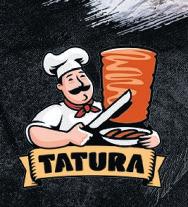
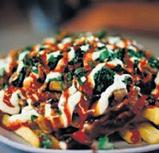
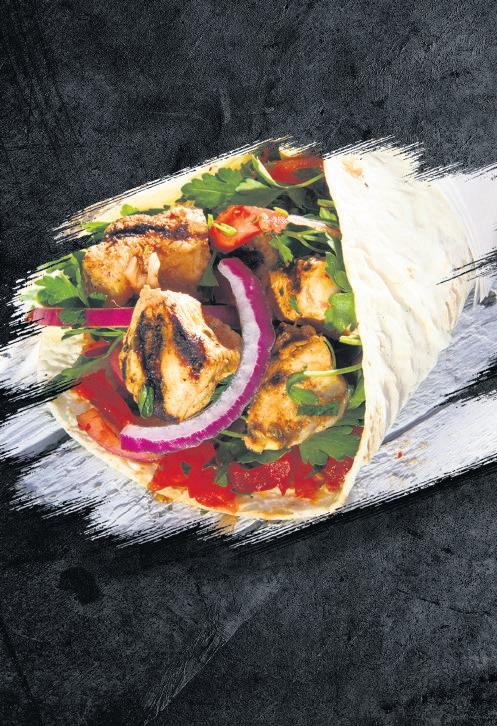
Breakfast club starts the day right.
Some say breakfast is the most important meal of the day, and when it’s delicious, it’s the perfect way to start your day.
For Tatura Primary School students, this sentiment rings true every Friday morning during the school term with the school’s Breakfast Club.
Run by a dedicated group of volunteer parents, the club aims to provide the school community with a nourishing breakfast that fuels both learning and play.
Breakfast Club co-ordinator Sally Beale expressed her joy in offering breakfast to students and families, particularly those who may not have the time or means to prepare it themselves.
“We can see that it gives the students a great start to their school day,” Sally said.
“The volunteers enjoy the social aspect just as much as the kids.
“During breakfast, we connect with the kids, make jokes, and check in on how their week is going.”
The Breakfast Club is supported by a clever initiative backed by Foodbank Victoria.
The menu includes toast, spaghetti, hot Milo, fresh fruit, fruit cups, cereal, and the crowd’s favourite — cheese toasties.
“Foodbank provides us with most food items; however, the school funds items that Foodbank cannot provide, such as butter, cheese, and equipment needed to run the Breakfast Club,” she said.
“Last year, the Victorian Government provided funding to Foodbank, which was used in
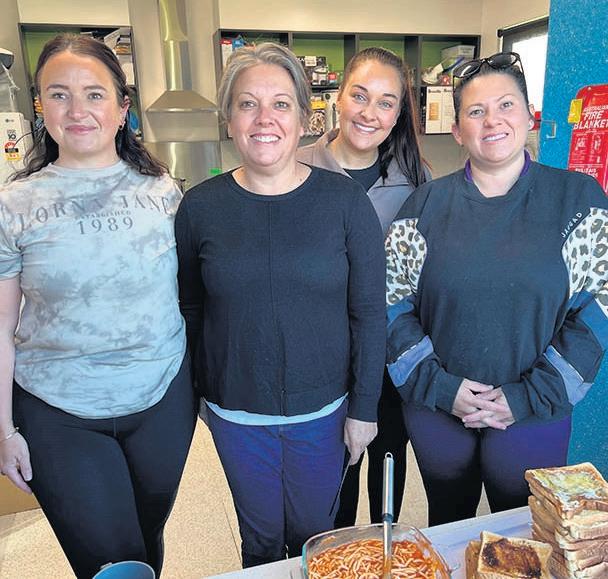
partnership with The Good Guys to supply us with new appliances like a microwave, toasters and sandwich presses.”
The program has received tremendous positive feedback from parents and students and is currently held on Fridays from 8.20 am at the school canteen.
Volunteers are currently exploring options to expand the service and provide food throughout the school day for students who may need it.
The program relies heavily on the support of the wonderful group of parent volunteers. Those interested in getting involved are encouraged to contact the school office.
BY Kelly Carmody
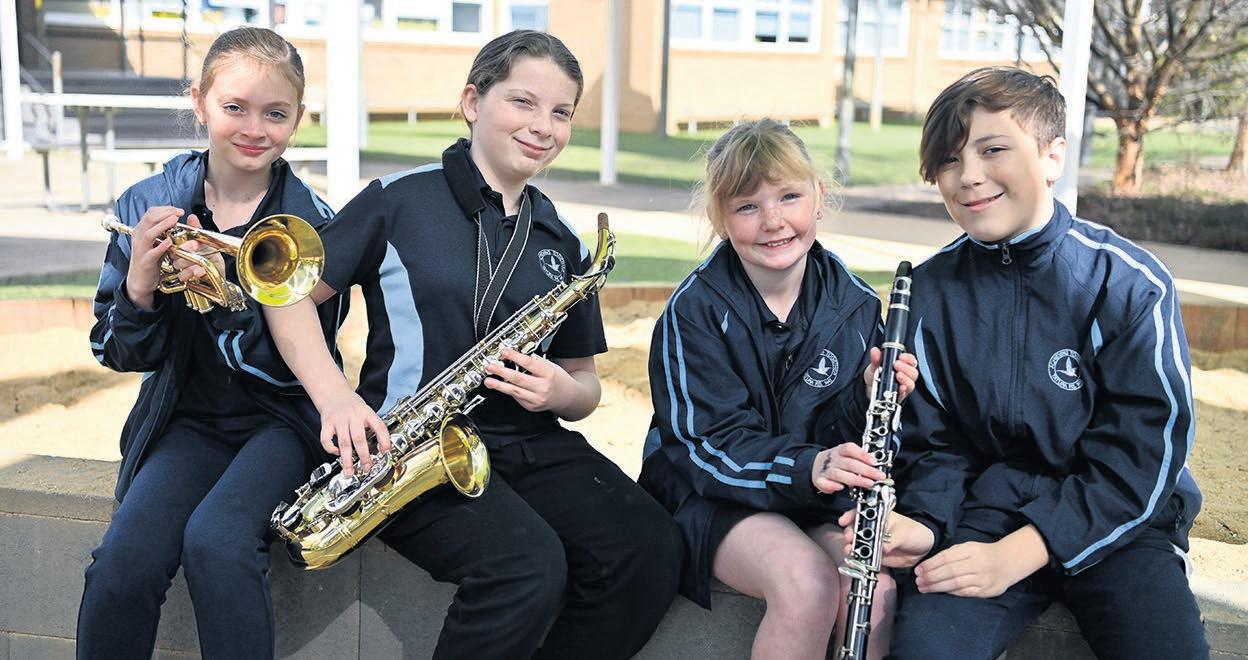
Students at Tatura Primary School love to perform.
Grade 5 and 6 students are able to join the school band, getting the chance to learn the flute, clarinet, saxophone, trumpet or drums, and have the chance to get out into the community to perform.
Lindy Tennant has been the instrumental and band teacher and conductor for the school for 10 years, and comes to Tatura Primary School once a week on a Monday to run the music classes.
“During Grade 5 and 6, the students get to do lots
of community events, and we have concerts every term,” Ms Tennant said.
“We pride ourselves in going out in the community, playing at Moyola, the children’s centre, we play at the Tatura Carols every year, and we also liaise with many of the other primary schools that I’ve started programs with.
“The children really look forward to getting into Grade 5 and 6 and joining the band.”
The students also do a concert every term, giving them plenty of opportunities to showcase their musical talents.
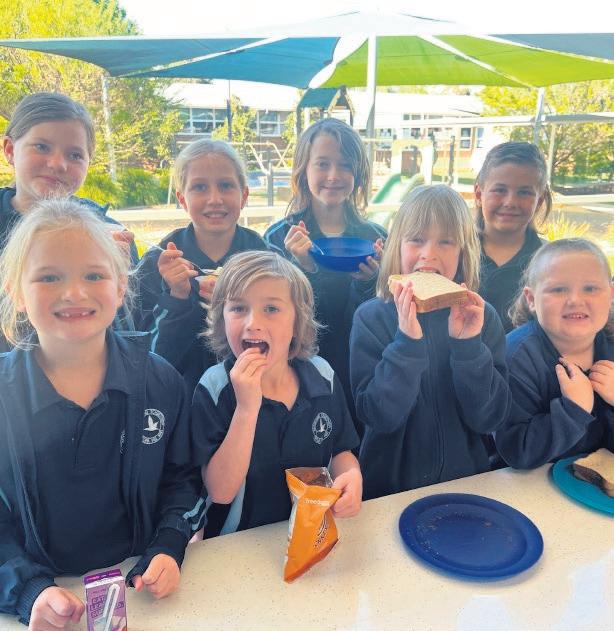
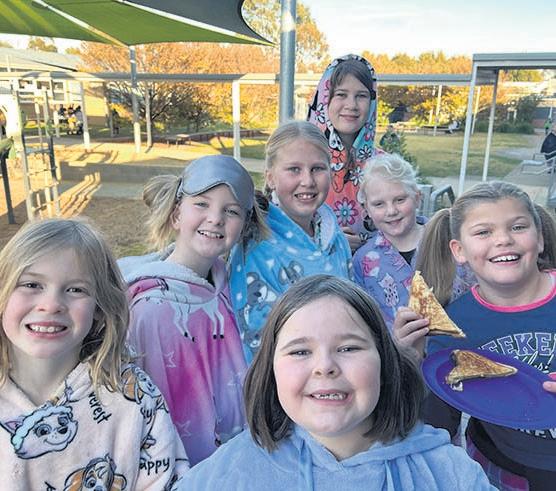
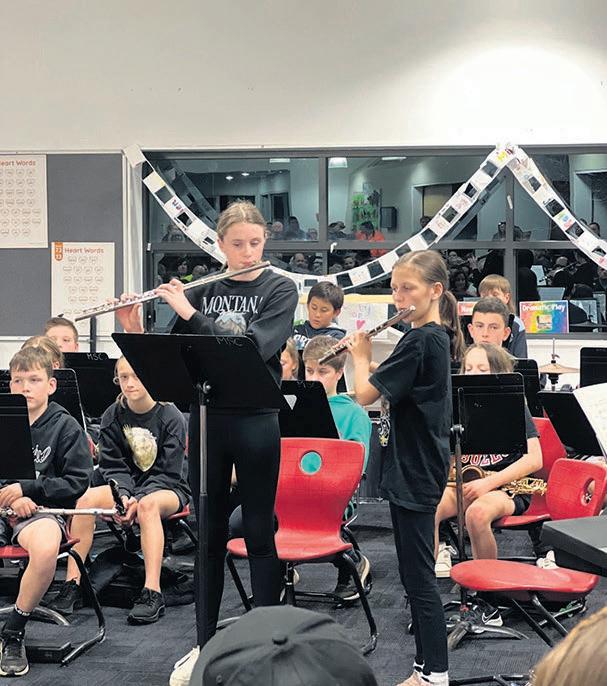
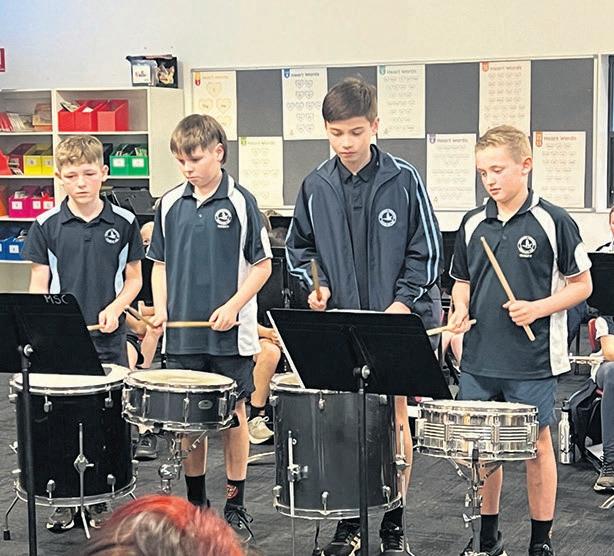
Aiming to build resilience and happiness.
For one hour each week throughout the school term, all students are now participating in a new subject called the Resilience Project.
This program focuses on promoting positive emotions such as gratitude, empathy, mindfulness and emotional literacy.
It involves a whole-school approach, engaging teachers, students and parents alike.
Key aspects of the program include increasing understanding of kindness, foundational knowledge on recognising and regulating emotions, handling challenging situations constructively, positive coping mechanisms and stress management.
It also addresses ways to increase calmness, cope with anxiety through mindfulness, and improve confidence and self-esteem, particularly in peer relationships.
Resilience Project teacher Dylan Argus said students were already benefiting from the lessons, showing enhanced self-awareness and improved communication.
“Each lesson focuses on one of the four key areas of the program: emotional literacy, gratitude, empathy, or mindfulness,” Dylan said.
“The goal is to integrate these lessons into their daily lives, both in and out of school. The kids get a lot out of it, and I’m definitely seeing the benefits.”
The Resilience Project is delivered through digital presentations, webinars, and a curriculum aligned with Victorian standards.
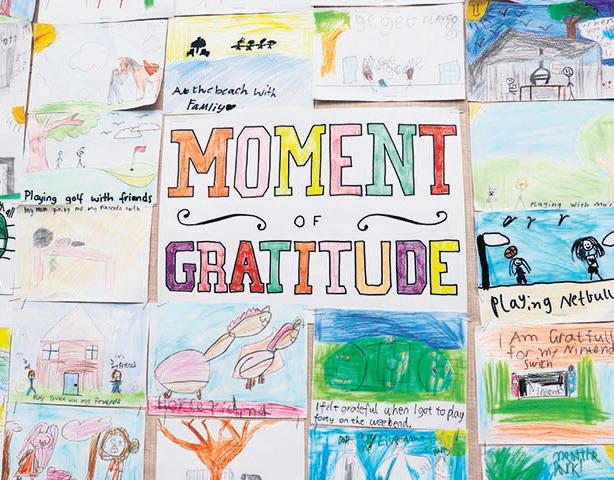
In its first year as a speciality subject, Dylan said it was significantly changing the way students think.
“Kids are expressing their emotions more openly and not feeling ashamed,” he said.
“They listen to each other more empathetically, which is a positive development.”
Dylan also mentioned that while discussing gratitude, students initially focused on material objects, but are gradually shifting their perspective to appreciate people and experiences.
“At the start of the year, many were focused on physical items like toys or games. Now, they’re beginning to understand the importance of valuing the people in their lives and the experiences they have,” he said.


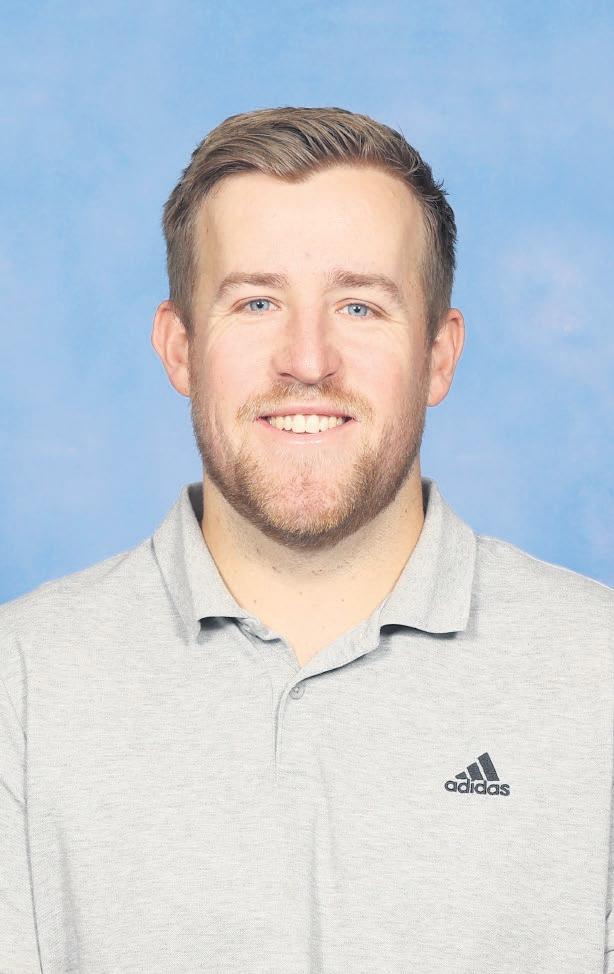
“It’s a gradual process, but the more they engage with the program, the more they develop a deeper understanding of gratitude.”
BY Kelly Carmody



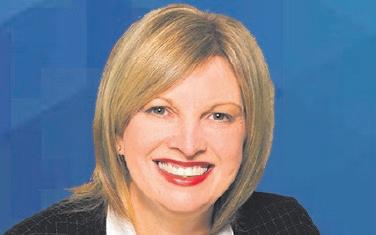







Tatura Primary School always wants to highlight the voices of its students.
They are the most important members of the school community, so when it comes time to making decisions for the school, the students should be involved.
Students can sign up to be a part of the Junior School Council, which helps to organise fundraisers and other events for the students.
The group of students meets once per week, on a Thursday at lunch, and discuss the ways they can help out the school.
Some of the events and fundraisers they have helped organise include Hot Dog Day, Footy Colours Day, Book Week and a dress up fundraiser for St Patrick’s Day.
The group also holds regular meetings with principal Susanne Gill to discuss the teaching, learning and wellbeing needs of the students. Another way students get more involved within the school is EnviroKids.
This group is perfect for students with a green thumb, with students helping the environment in many ways.
EnviroKids meets once a week at lunchtime on
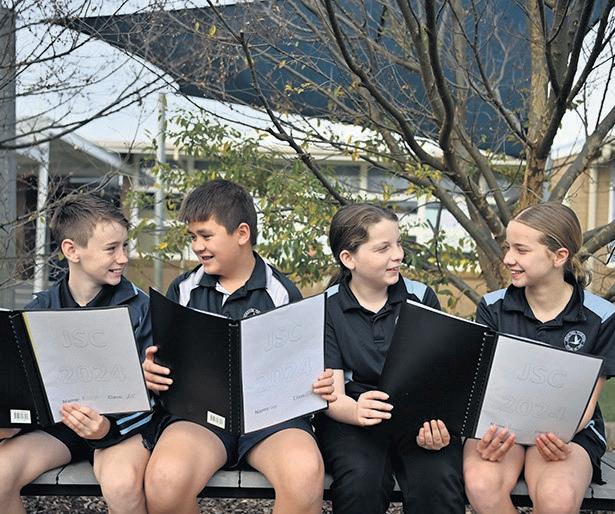
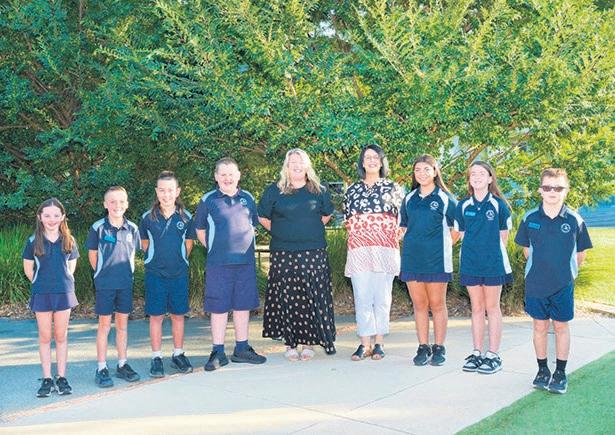
Tuesdays, and there they brainstorm new ideas of how they can make the school more sustainable. They also plant trees and other plants on the school grounds, created a vegie patch and participate in ‘One Tree Per Child’ every year.
BY Georgia Tacey
The magic of school camps and sleepovers. The camps program progresses from a fun evening at school in the early years to multi-day outdoor adventures in later grades, focusing on teamwork, independence, and learning.
Foundation to Grade 2
The Junior camps program begins in Foundation and Grade 1 with a special dinner and a variety of activities at school. This fun evening runs from 3.30 pm until 7 pm.
In Grade 2 the children stay at school to play games, prepare and eat dinner and sleep at school.
In the morning they enjoy breakfast, go for a walk around Lake Bartlett and enjoy some activities before heading home.
Grades 3/4
The middle section camp program consists of two nights and three days.
Currently, the school rotates between Alexandra Adventure Resort Camp and Campaspe Downs Camp in Kyneton.
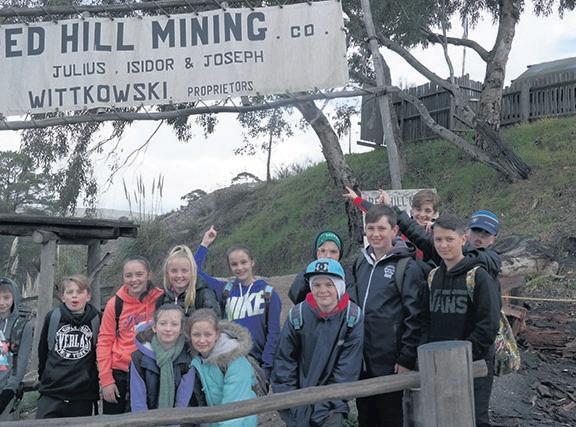
Students participate in outdoor activities such as canoeing, bush walking, flying fox, ropes course, rock climbing and orienteering.
This is a great way for students to work together and build on supportive group work.
Grades 5/6
The senior school camping program is designed to consolidate the values of co-operation, team

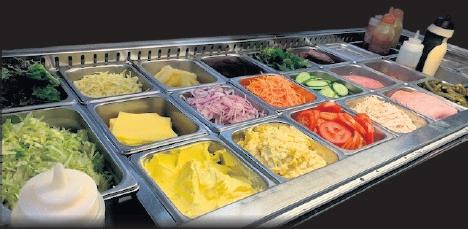

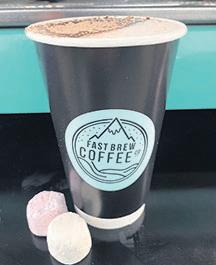

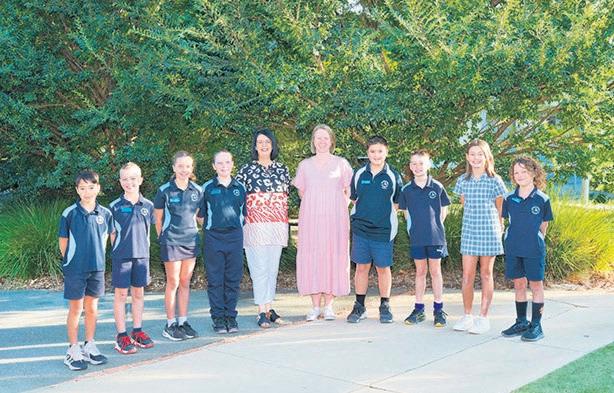
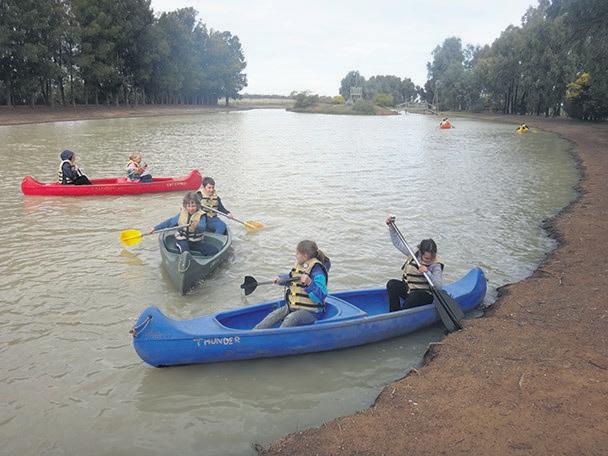
work and independence.
Each camp also has an underlying basis of consolidation for content taught in the areas of geography and history.
The camping program is set up to include a beach/seaside environment in Anglesea and a history/geography setting in Ballarat, and in particular a day at Sovereign Hill.








The sound of tradition returns as the school bell comes home to its rightful place.
In late 2016, Tatura Primary School principal Susanne Gill received an email from an historical society in Gippsland offering to sell the school’s original bell.
Having been a cherished fixture at the old Tatura Primary School site on Casey St, Susanne saw this as a perfect opportunity to bring the bell back home.
“It seemed like an opportunity too good to refuse,” Susanne said.
“I believed it was important to have the bell returned not only to the school, but also to its hometown, so I set about making that happen.”
With assistance from former Tatura Primary School principal Gary Hopcroft, the bell was retrieved and prepared for a full restoration.
Through Gary’s connection with the Tatura Men’s Shed, it was decided that they would undertake the task of polishing and framing the bell for future display.
“Paul Berg applied his exceptional woodworking skills to design and construct a beautiful frame for the bell,” Susanne said.
“The frame is crafted from red gum recovered from the old station master’s house in Tatura.”
The bell itself was meticulously restored by Gary and others, reflecting the considerable effort invested in its revival.
There are plenty of opportunities for parents to volunteer at Tatura Primary School.
Parents, grandparents and guardians can participate in the breakfast club, Mother’s Day and Father’s Day breakfast and stalls, sporting days, hot dog days, reading to the children, barbecues and more.
Parent and regular volunteer Sally Beale loves helping out with the
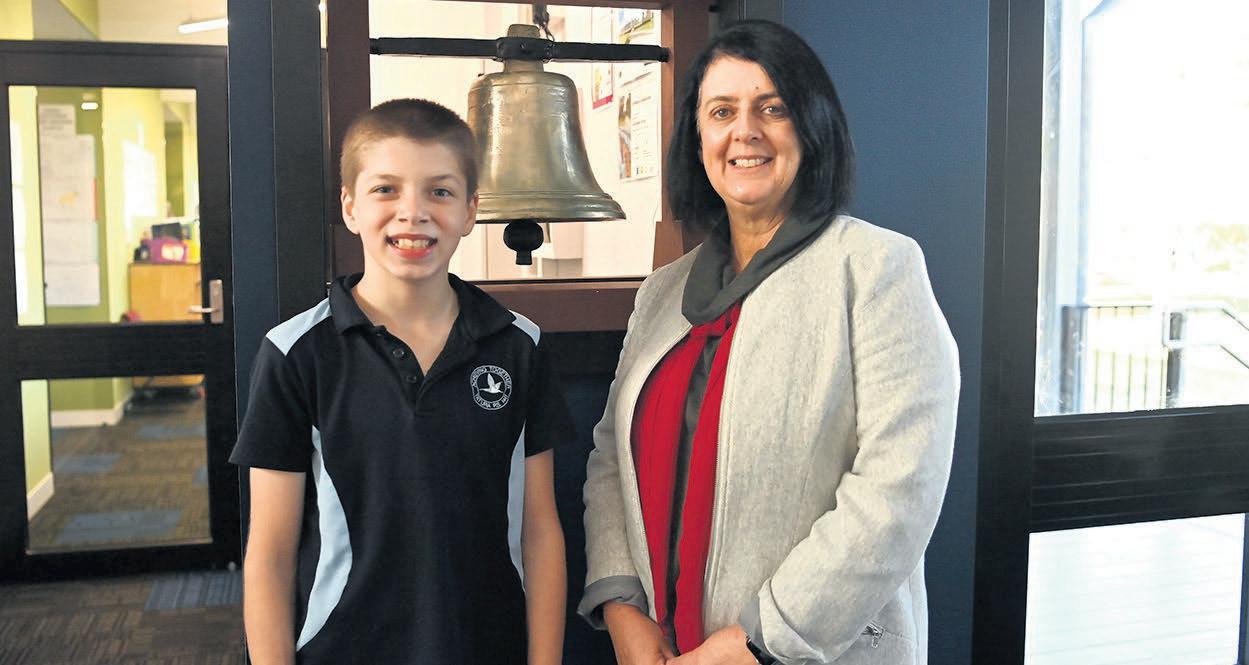
The bell was ceremoniously presented to the school community during a full school assembly in late term one of 2017 and is now proudly displayed in the school’s main walkway area.
“A volunteer at the school, Ian Tavener, recalls ringing the bell back in the day,” Susanne said.
“We also have a display of photos showing the original bell tower’s location.
“Visitors are warmly invited to visit the school and see the bell for themselves.”
BY Kelly Carmody
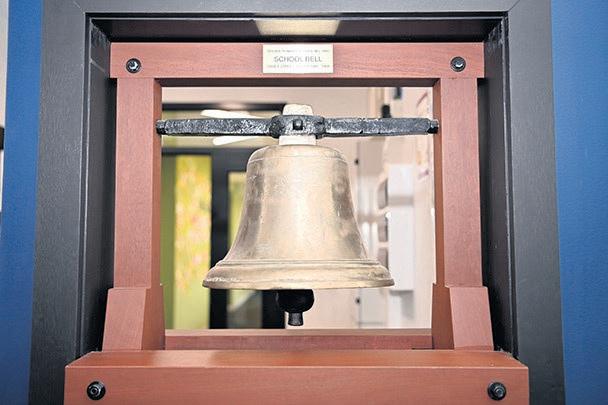
Join us for Christmas Day Celebrations!
weekly breakfast club on a Friday morning, and has been doing so since her eldest started at the school in 2018.
“I really like being involved and getting to know the kids and staff,” she said.
“Being present for my kids is really important to me, and (I love) being part of the community.”
To get involved with volunteering, chat with the school to see what’s available.
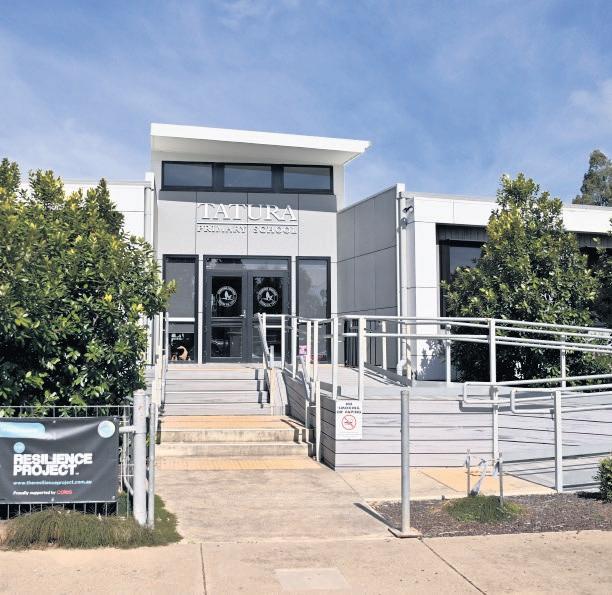
The McPherson Media group would like to congratulate Tatura Primary School on 150 years of education, and thank them for the opportunity to produce this publication.
If the McPherson Media can help you celebrate your business or event, please call us on 5820 3134.
Friday, November 1 from 9am - 6pm and Saturday, November 2 from 9am - 1pm.
25% off NEW season gifts, plus loads of door prizes! Fresh giftware and stunning Christmas decorations! Don’t miss out!


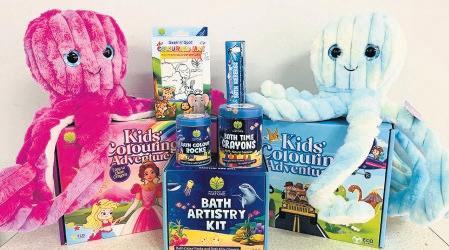
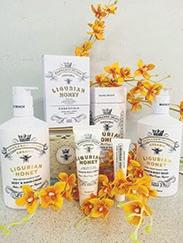
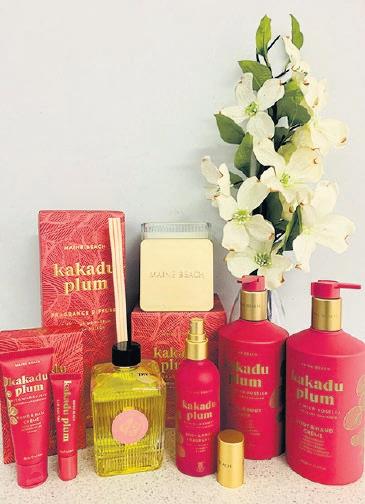

Linden Ashcroft’s journey. What year did you attend the school?
Who was your favourite teacher and why? Ms Stephens, my Grade 5 teacher, was my favourite. Her positivity, enthusiasm, and creativity stuck with me for a long time. I still remember rubbing a map in the sandpit to make it look old for a history assignment.
What was your favourite subject? by the end of Grade 6. We did a lot of speed multiplication games, and it felt good to beat the boys.
How did you get to school? We walked, drove or rode.
What was your least favourite thing about school? I didn’t love PE.
What did you do when you left school? of us from Tat Primary went on to Mooroopna Secondary College. After that, I went to The University of Melbourne and studied science.
What are you doing now? After doing a few different things, I am now back at The University of Melbourne where I am a lecturer in climate science and science communication.
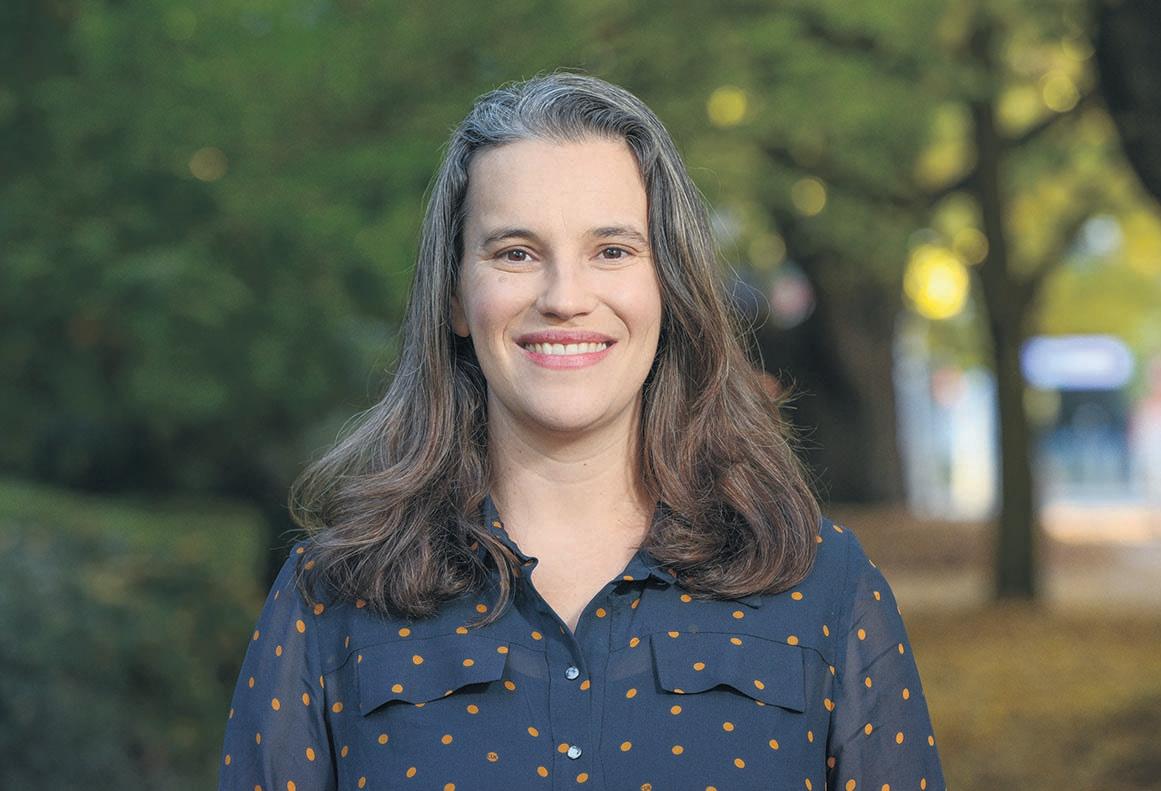
Tell us briefly about your life after Tatura Primary School … My love of science and stories has led me on lots of adventures.
I’ve done a PhD in climate science, travelled around Australia throwing slime at children with a ‘science circus’, worked in Spain, and been a scientist at the Bureau of Meteorology.
I’m a climate science and science communication academic now, which means
I study and teach climate change, but also try to share my expertise with as many people as possible.
I also work with students from all fields of science, giving them the skills and confidence to share their work with the world to make change. I feel very privileged to be able to use my education in these fields.
Many of my dearest friends are people I went to primary school with, and we are now watching our own children grow up together.
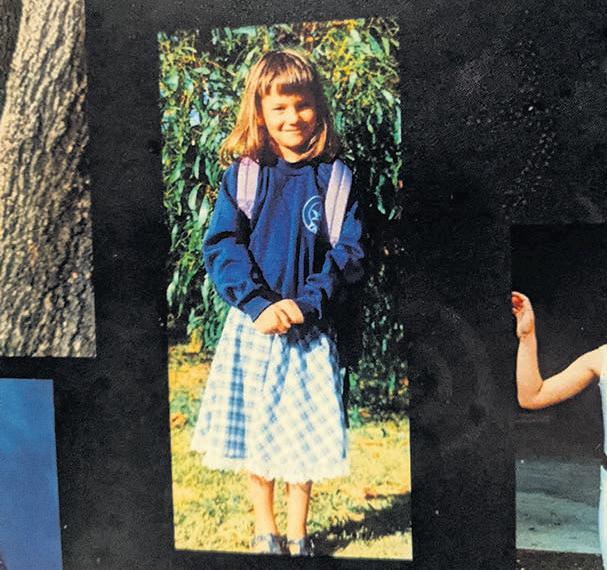
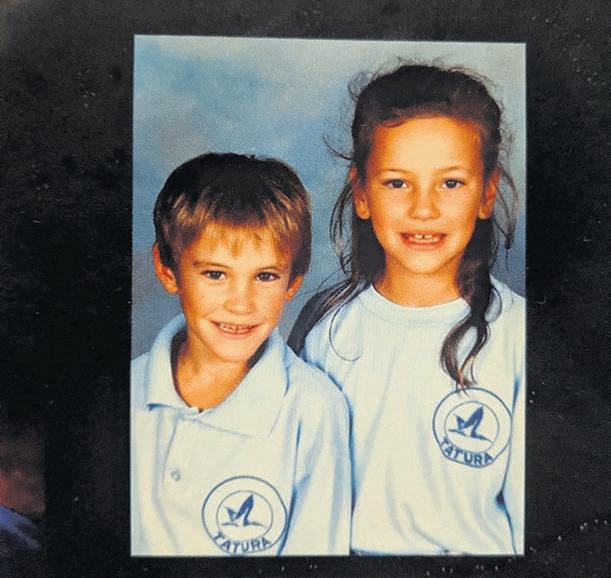
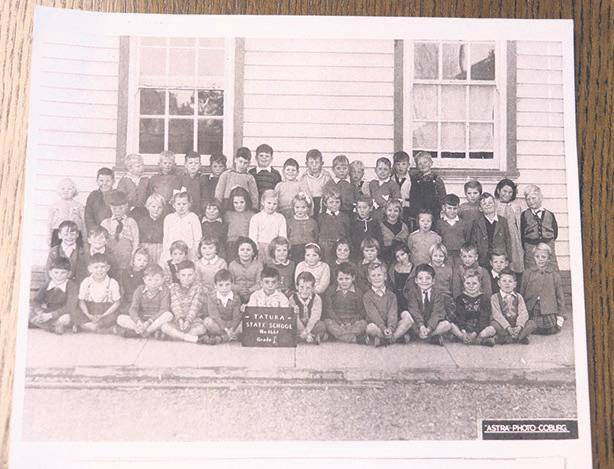
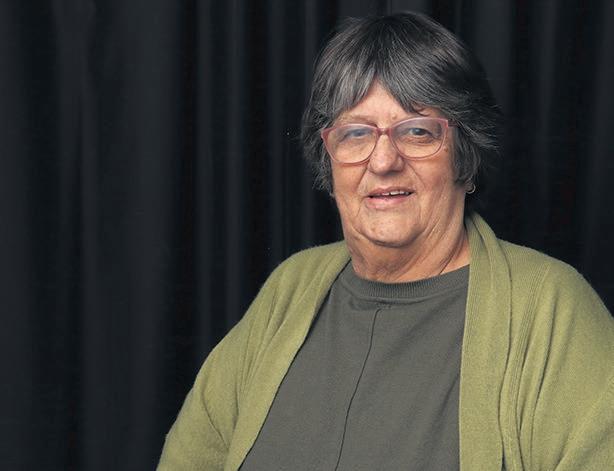
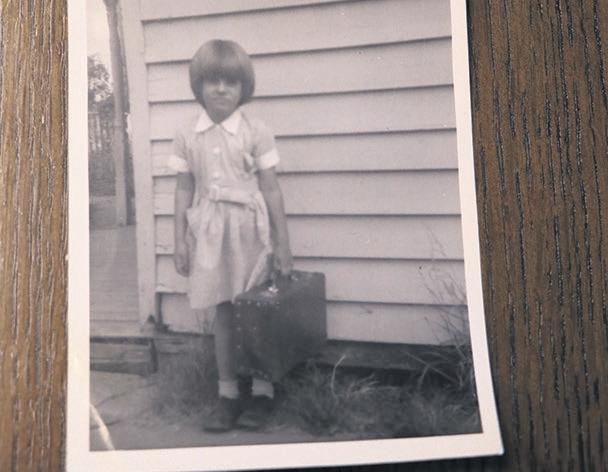
A proud family tradition continues through four generations at Tatura Primary School, with memories stretching back to 1912.
Name and age: Kerryn Alexander. 65. What year did you attend the school? I started school in Prep in 1965
Who was your favourite teacher and why? My favourite teacher was Mr McCormick because in my eyes he was a fun teacher, and he listened and understood us kids back then. He played the guitar and played fun songs, and everyone just got along because of him.
What was your favourite subject? My favourite subject was art. I loved making and creating things. How did you get to school? I walked to school with my brothers and sisters and sometimes met
my friend on the way and walked with her as well. What was your least favourite thing about school? My least favourite thing was being teased and made fun of, and it was not just me it was my brother and sister as well.
Back then, bullying, as it is known as today, wasn’t addressed or acknowledged as it is today. It had a lasting effect on myself and my family growing up. What did you do when you left school? When I left school, I went to the new Mooroopna High School, which opened in 1972. I felt special, being at a new place.
Tell us briefly about your life after Tatura Primary School … I finished school in Form 5 and got a job at the State Bank in Tatura.
Have you got any more information you feel is important to share …
• My family has been attending Tatura Primary School for four generations.
• My grandfather William (Bill) Alexander attended in 1912 with his sisters.
• My Dad, Todd Alexander, attended in 1945 with his two sisters and four brothers.
• I started there in 1965 at the old site then moved to the current site in 1970. My brothers and sisters all attended the school as well.
• In 1986 my son Marc Alexander went through school there too.
• My aunt Myrtle Nixon (Alexander) which was my Dad’s sister, went to Tatura Primary School alongside other siblings. To my knowledge, she is the oldest student who attended the school that is still living. She now resides in Gilleston.
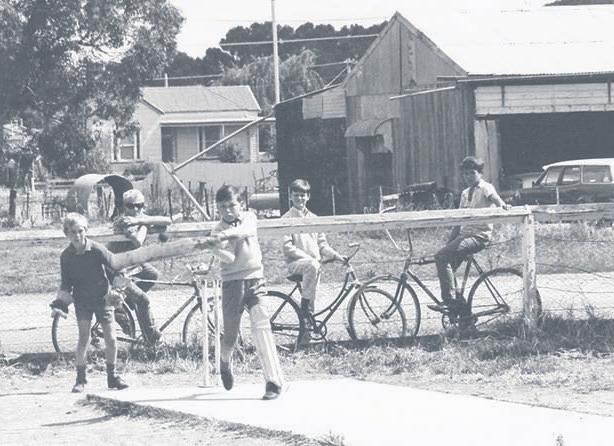
1874 — 1877: Humble beginnings of school 1441 in The Bark Hut in North Tatura housing 50 enrolled children.
1878 — 1885: Upgraded to a weatherboard building at ‘Fuzzards’, about 3 kilometres south of the town.
1885 — 1969: ‘The Old School’ was located on Casey St, where G-MW stands today.
1900 — 1960: A school register exists with all the students’ details.
1916: Major renovations and extensions to the school.
1960s: Many inter-school sporting competitions were developed including basketball, netball and football.
1960s: The House system was established with Batman and Henty.
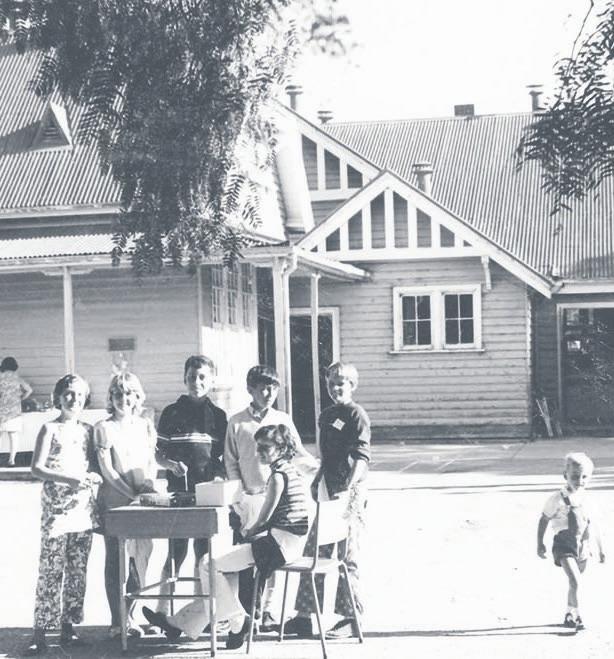
1961: A school uniform was adopted — college grey jumper with gold and royal blue bands.
1963: Two additional classrooms were built on the Casey St site.
1967: Two more houses were created with Mitchell and Sturt beginning.
1970: Present school 1441 moved into its current location
1970: Name change from Tatura State School to Tatura Primary School and the headmaster became the principal.
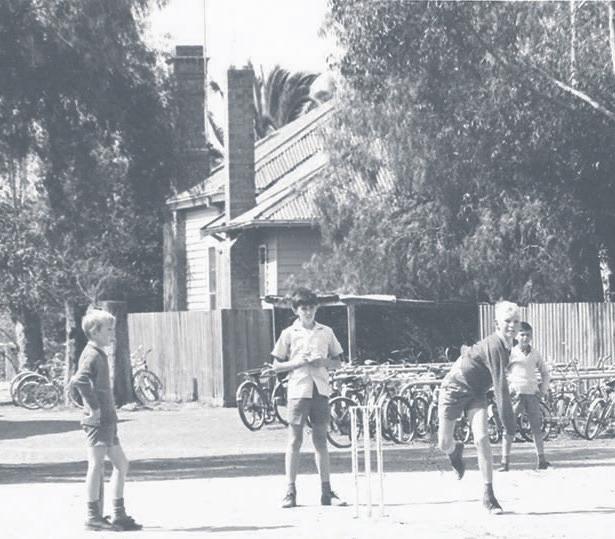
1983: School playground built.
1995: 25th Anniversary celebrated and ‘Achieving Together’ was adopted as the school motto.
2007: The ‘Big Shed’ was constructed to house the playground and basketball court.
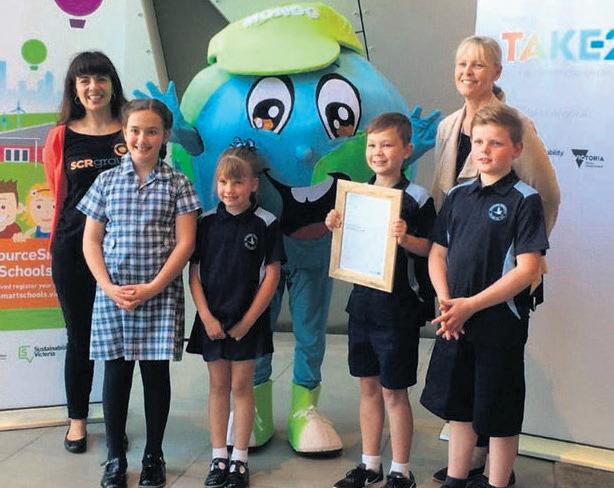
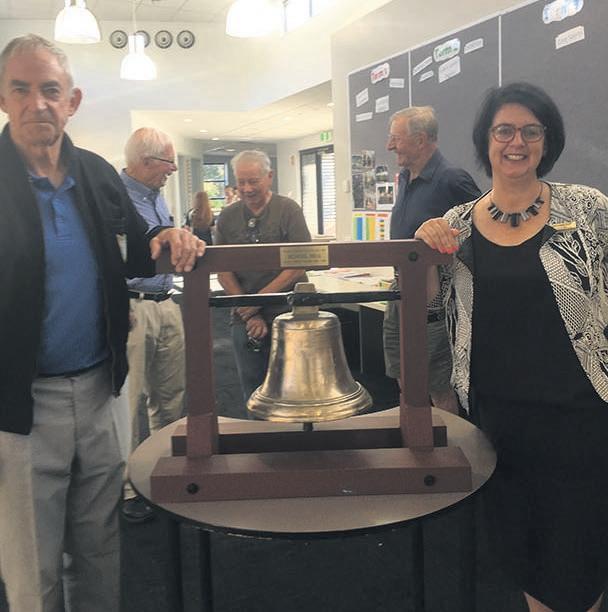
2011: C-Block was built and replaced several mismatched portables.
2017: The old school bell was found and restored to its former glory. Envirokids won the Student Action Team of the Year (Primary) at the Sustainability Victoria Resource Smart Awards
2018: A-Block was demolished.
2019: New A-Block was opened in February — a modern permanent modular building.
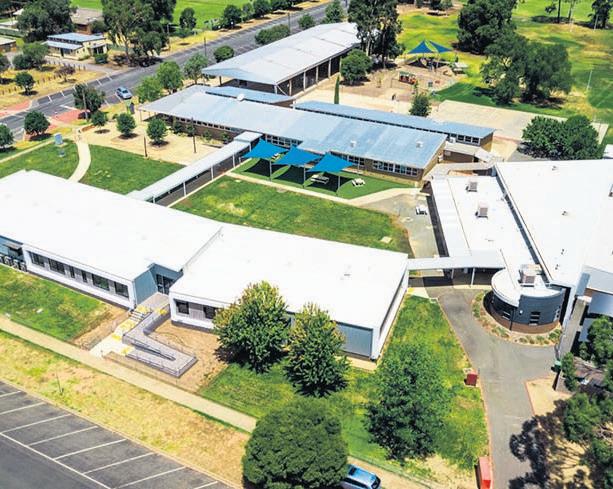
School Wide Positive
and the new
were
constructed with student voice — Be respectful, Be a learner and Be safe.
2022: Enhanced security in the form of boundary fencing and upgraded reception area.
2023: The Houses were renamed to acknowledge our local Indigenous birds.
2024: Celebration of 150 years of teaching and learning at Tatura Primary School.
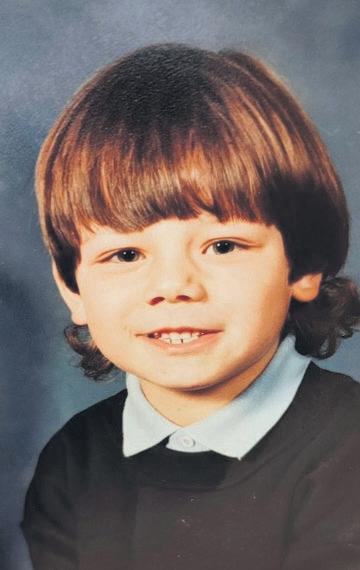


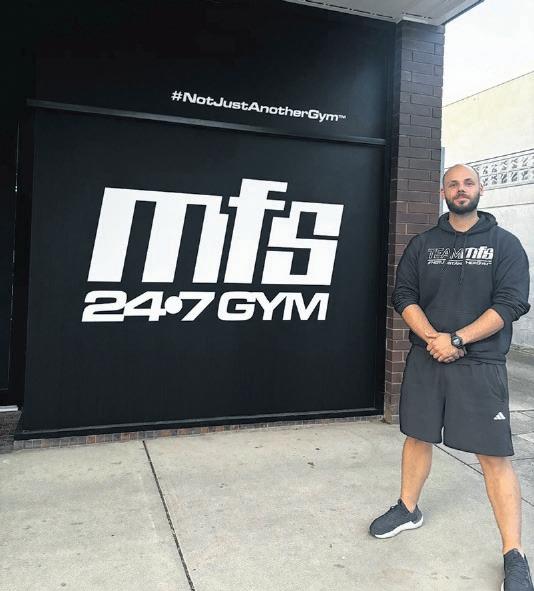

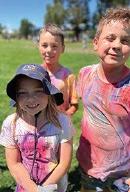
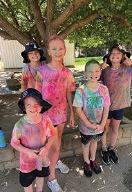
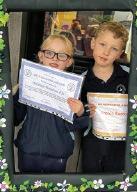

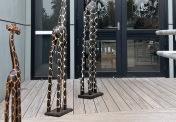




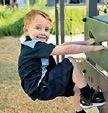
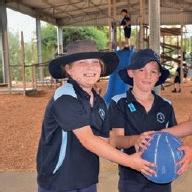




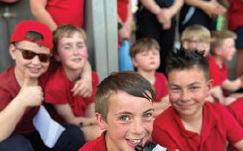



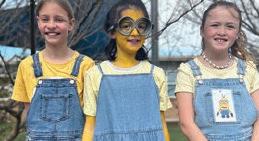

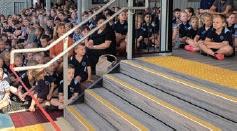




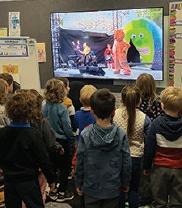







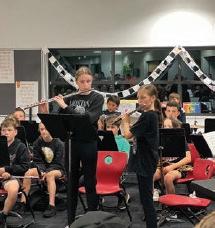
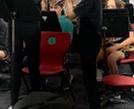
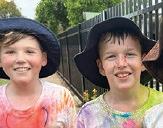
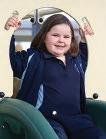
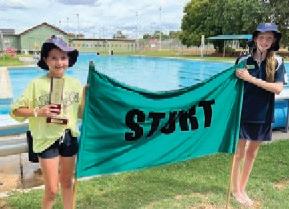




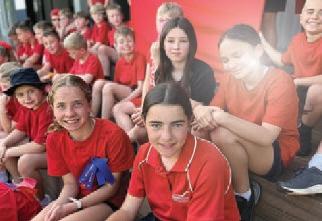
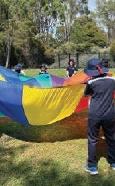




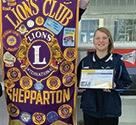


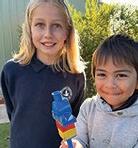




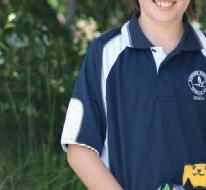


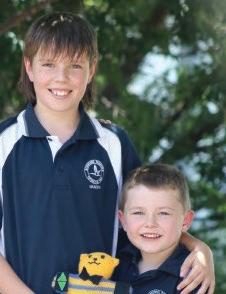




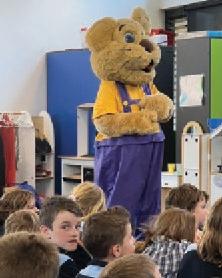
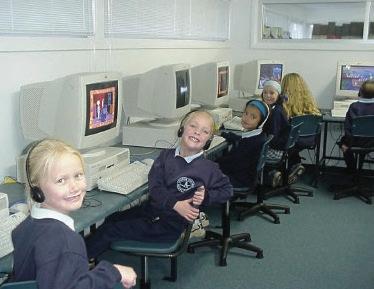
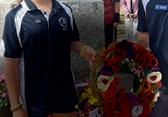



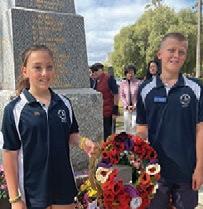

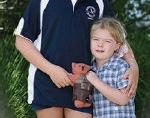



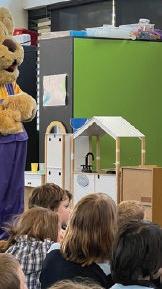
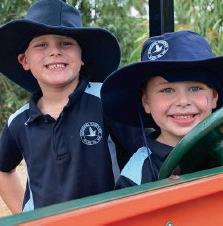


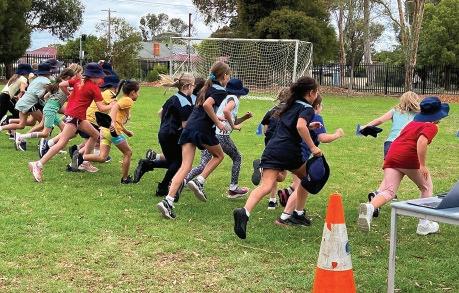



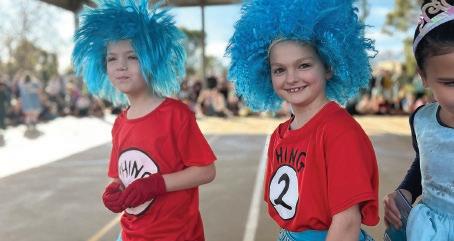






we strive to maximise student achievement through focused teaching while instilling the belief that success comes from effort. We foster social and environmental responsibility, empowering our students to become responsible citizens.

We invite new families to contact our office and book a school tour Because at Tatura Primary, every day is an open day!
Tatura Primary School
Corner Service and Albert Streets, Tatura, 3616
T: (03) 5824 1684
E: tatura.ps@education.vic.gov.au
W: www.taturaps.vic.edu.au
